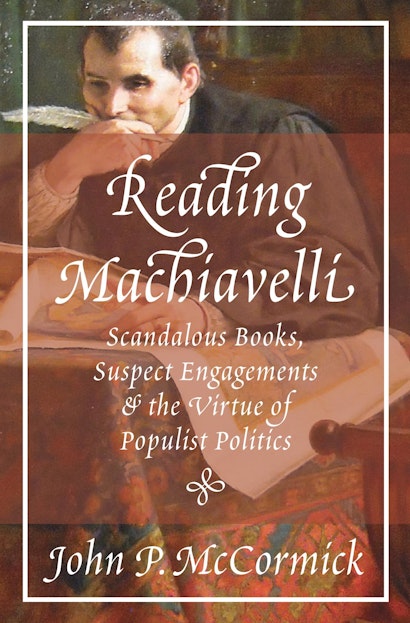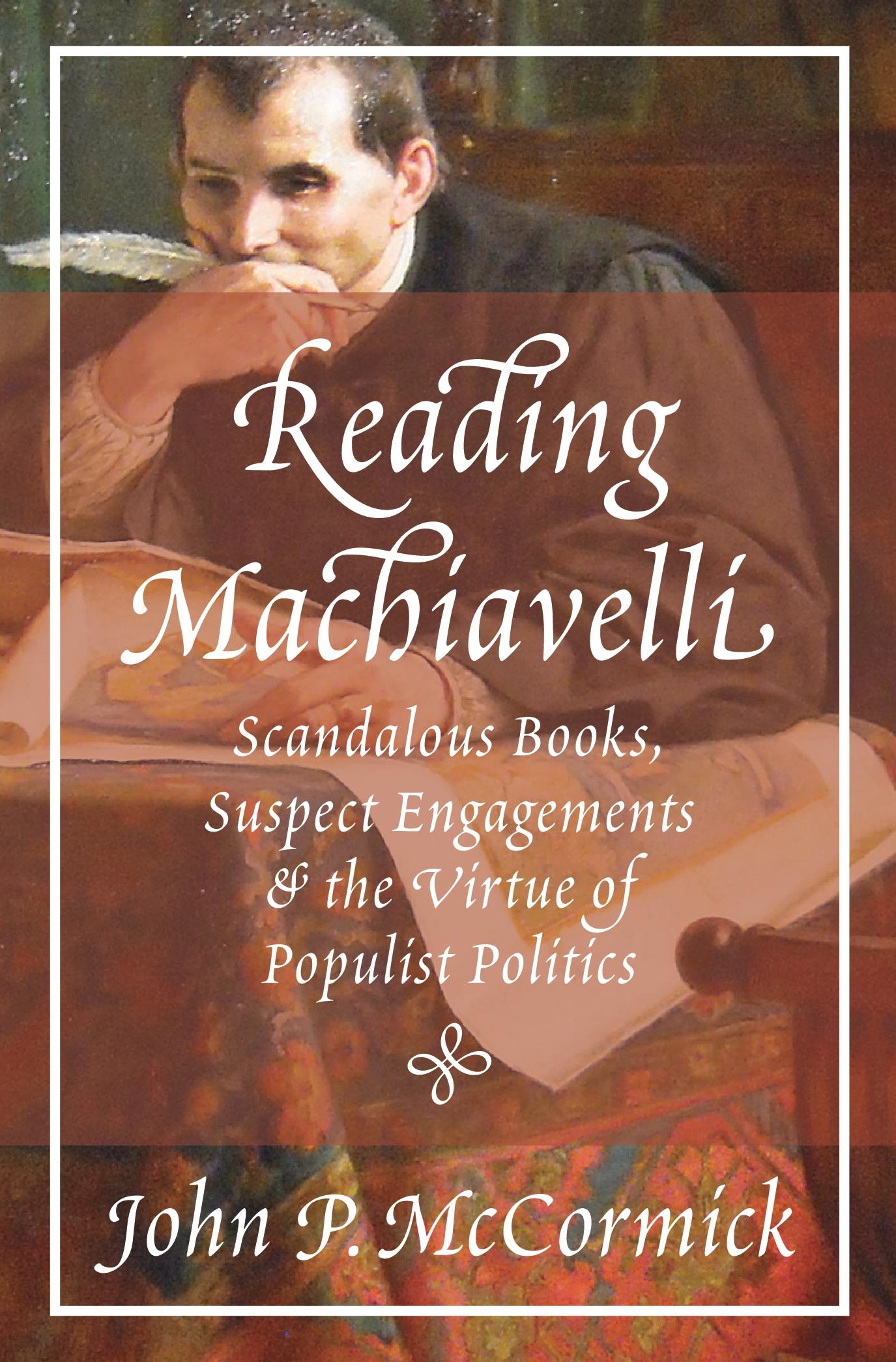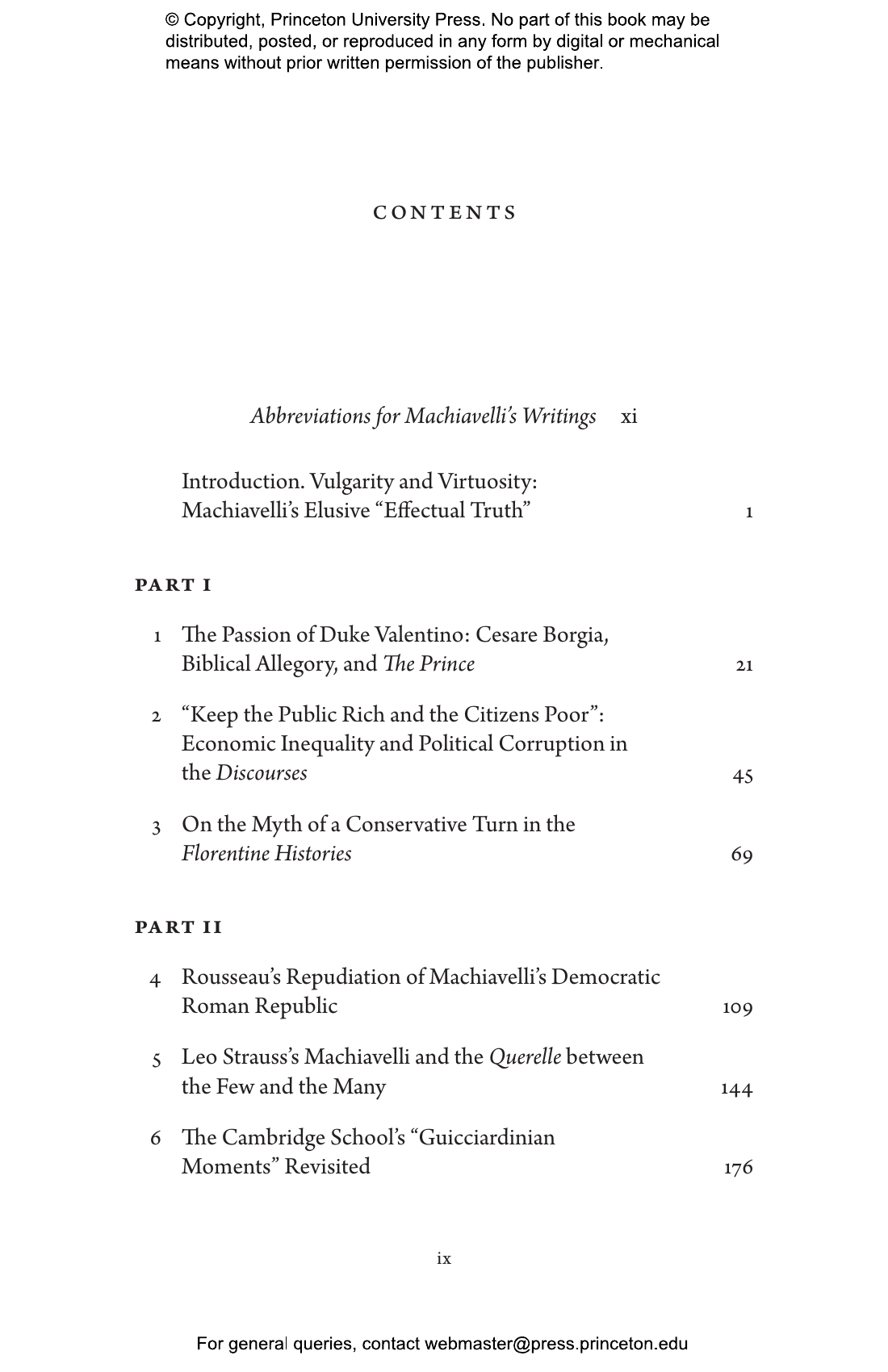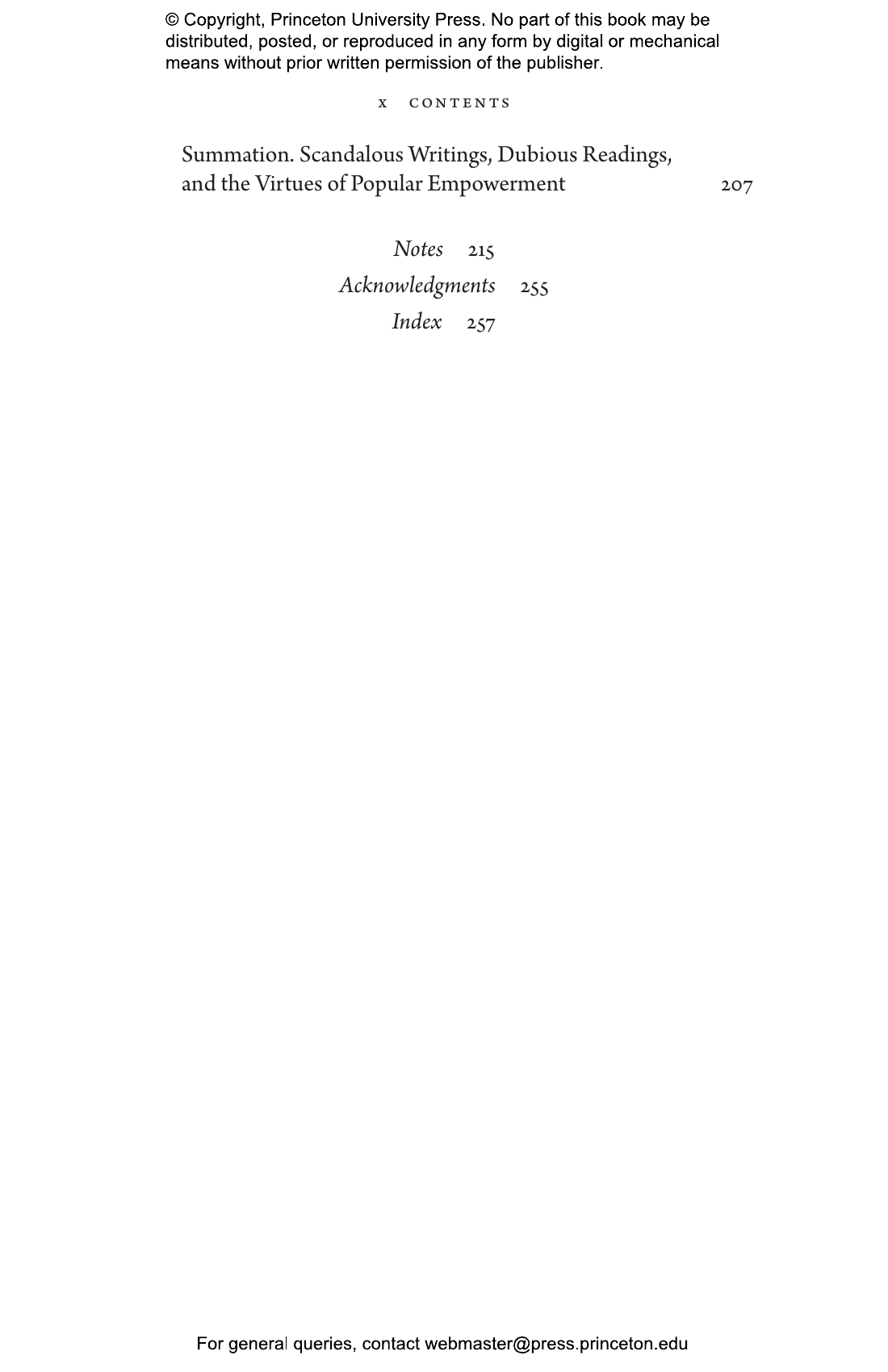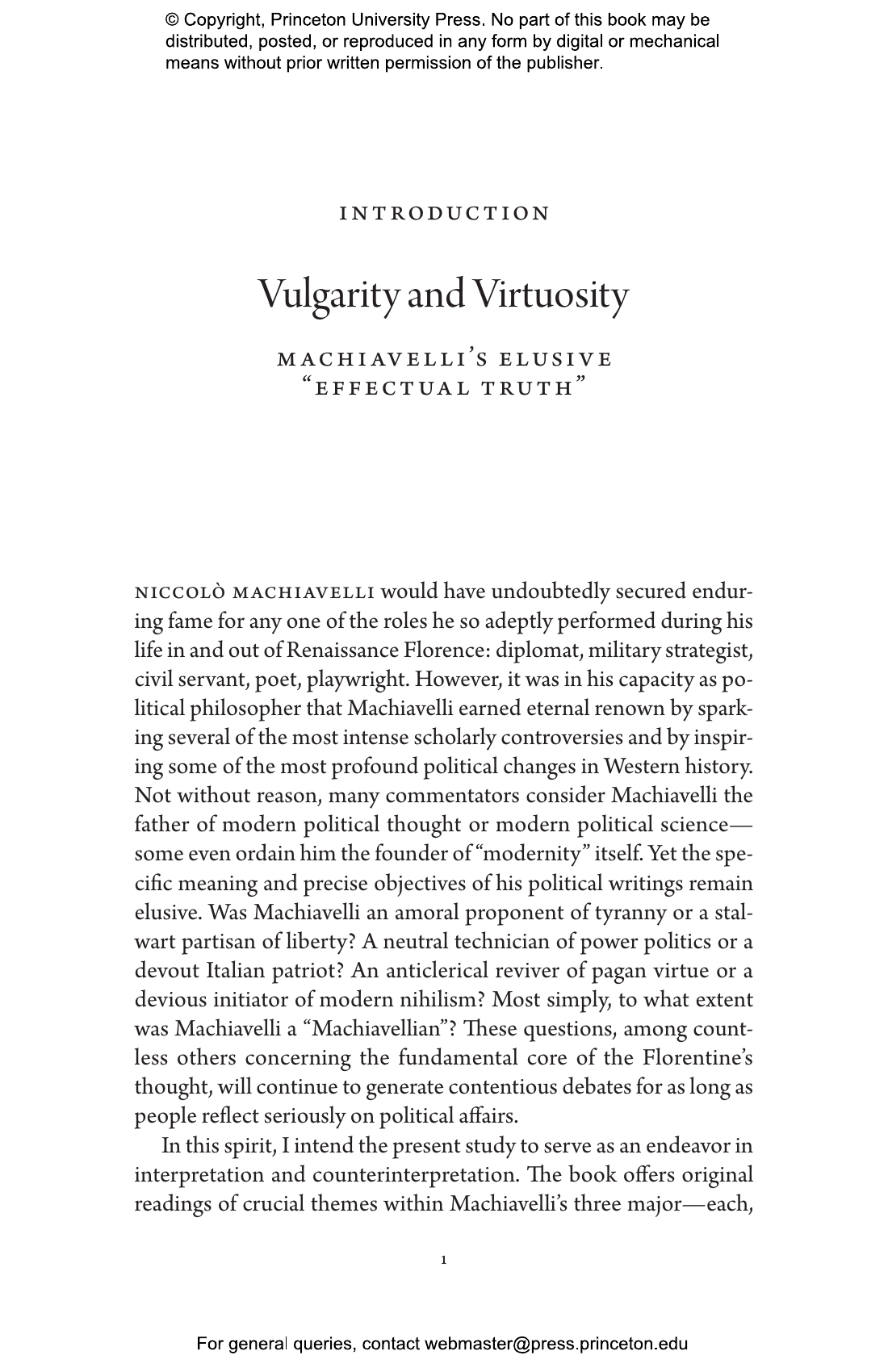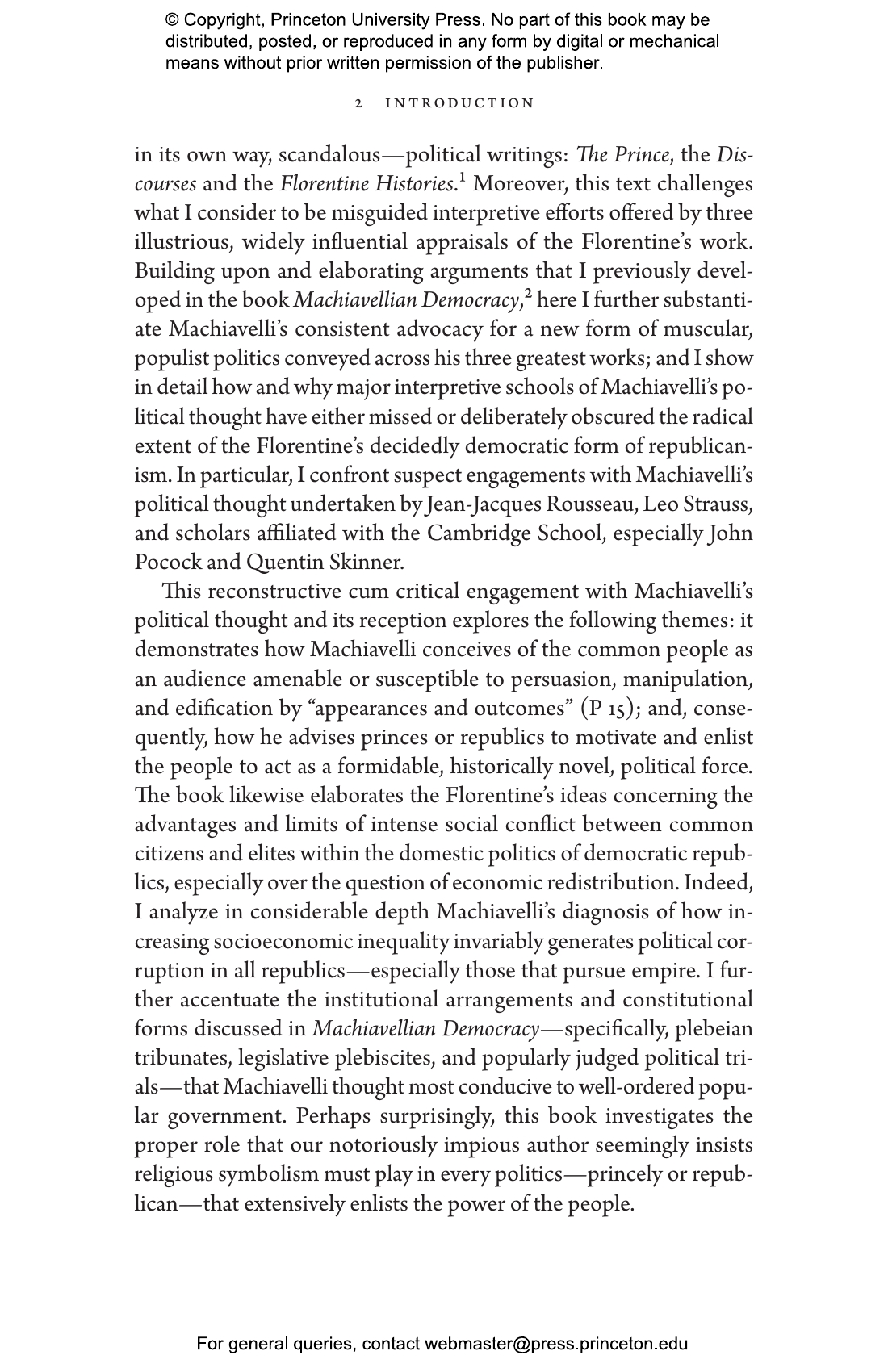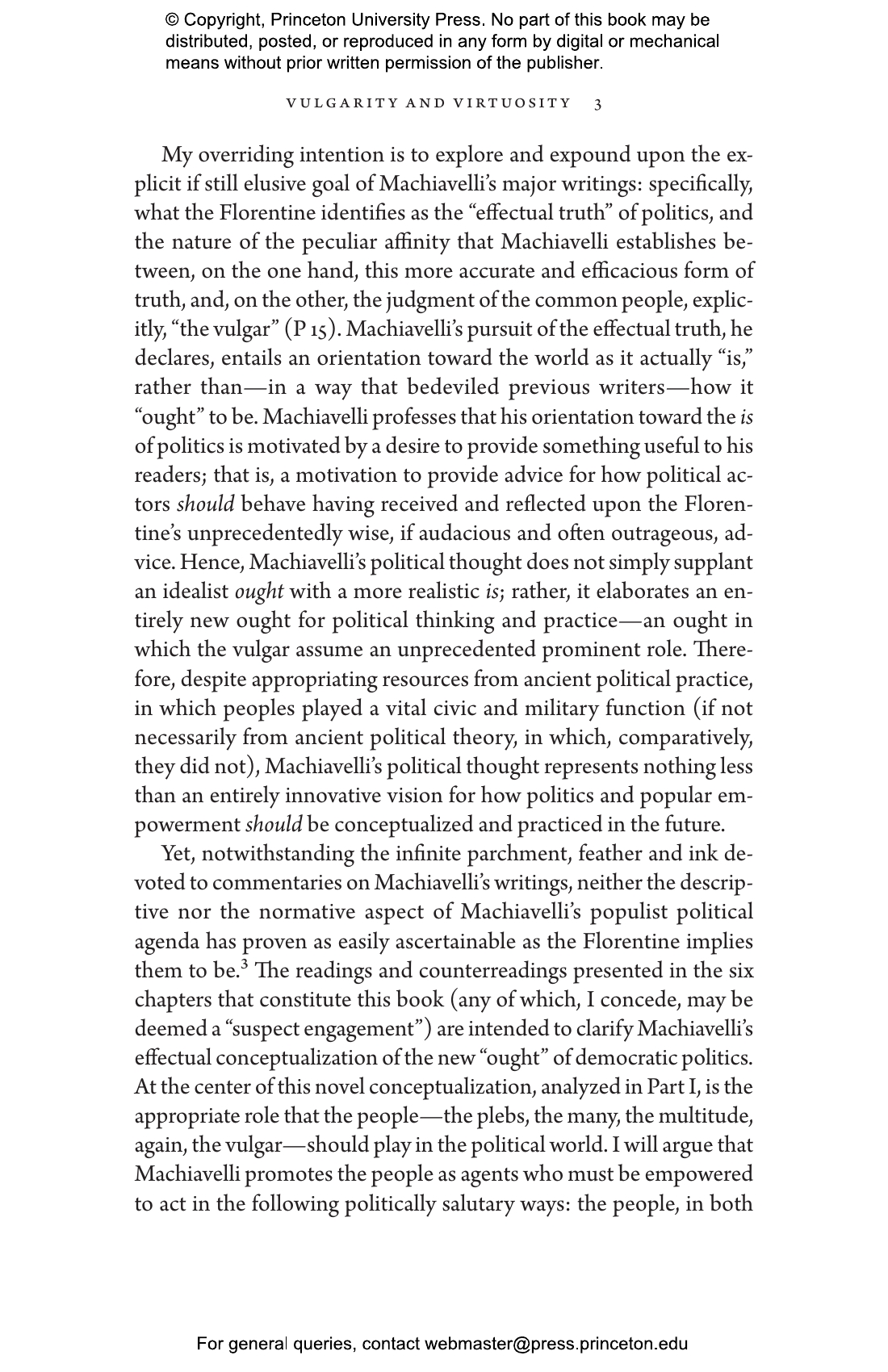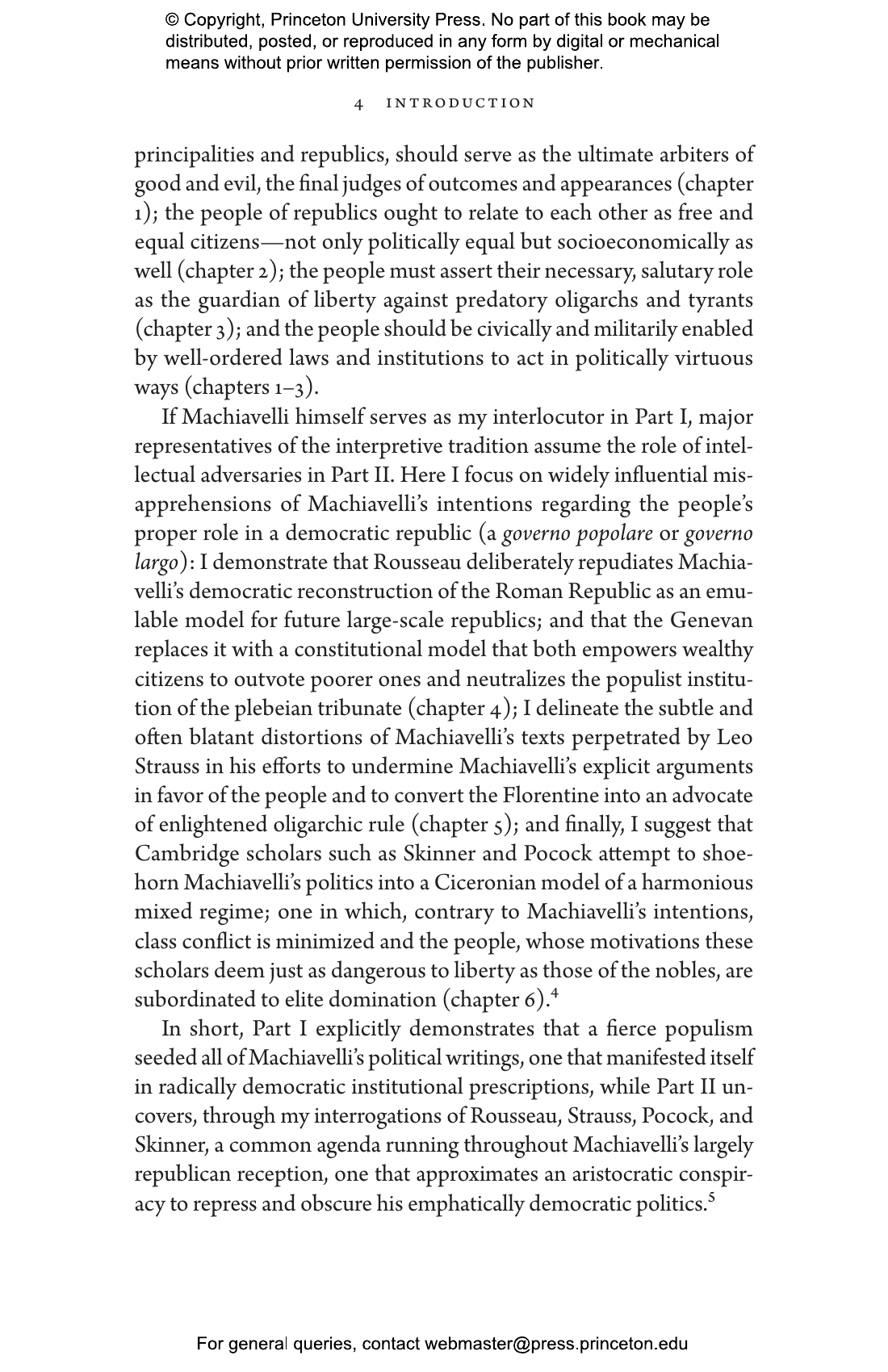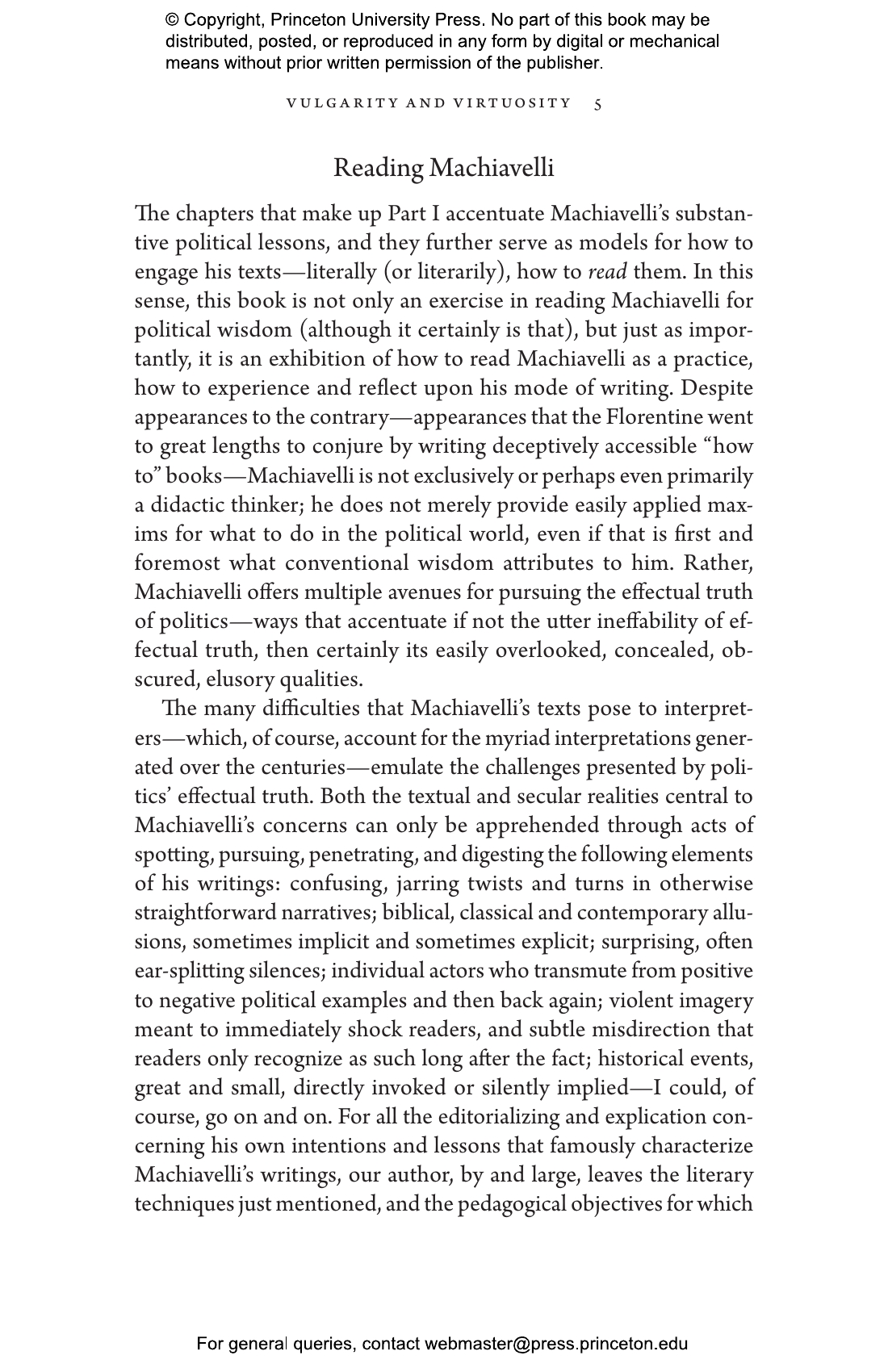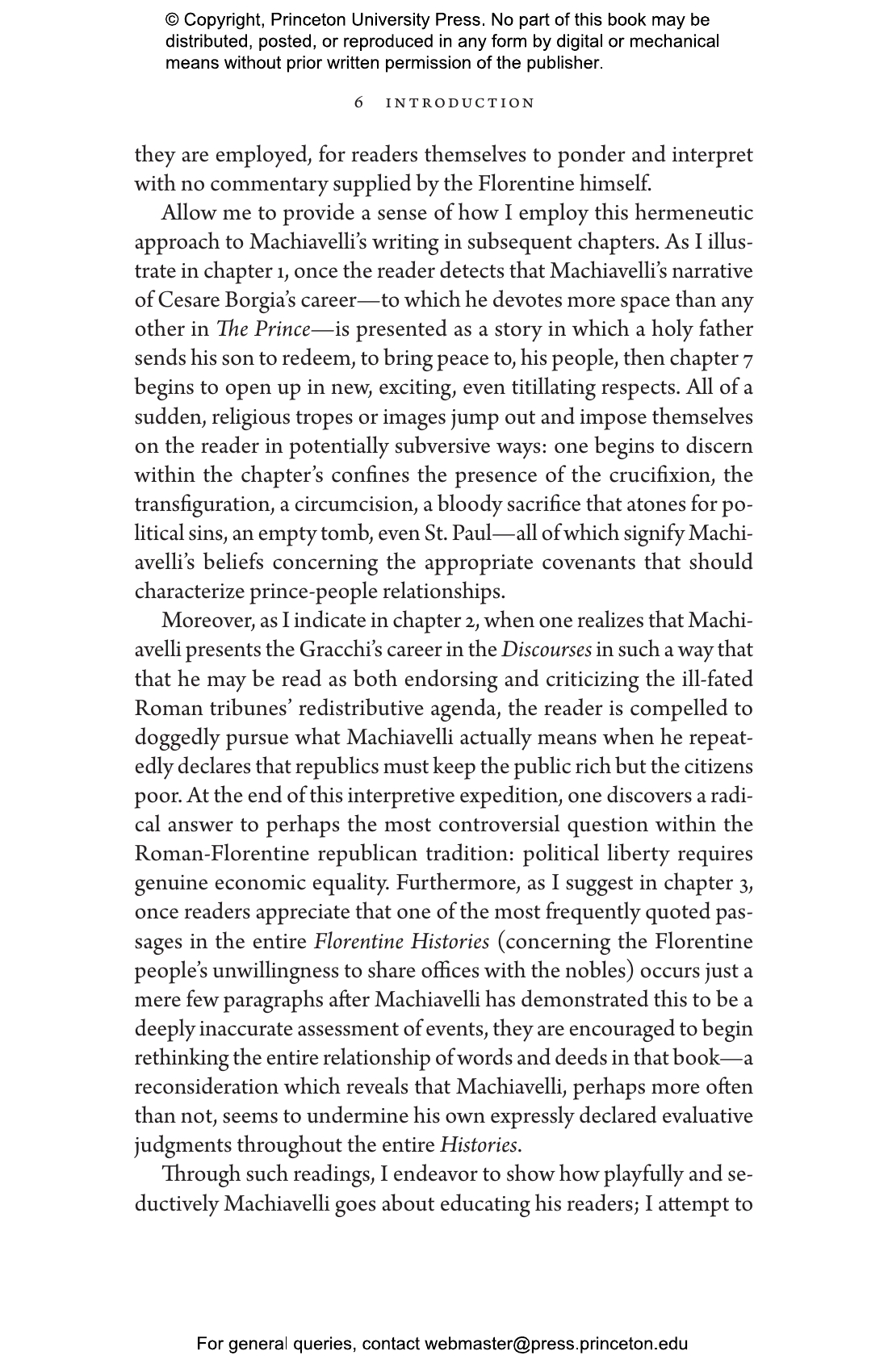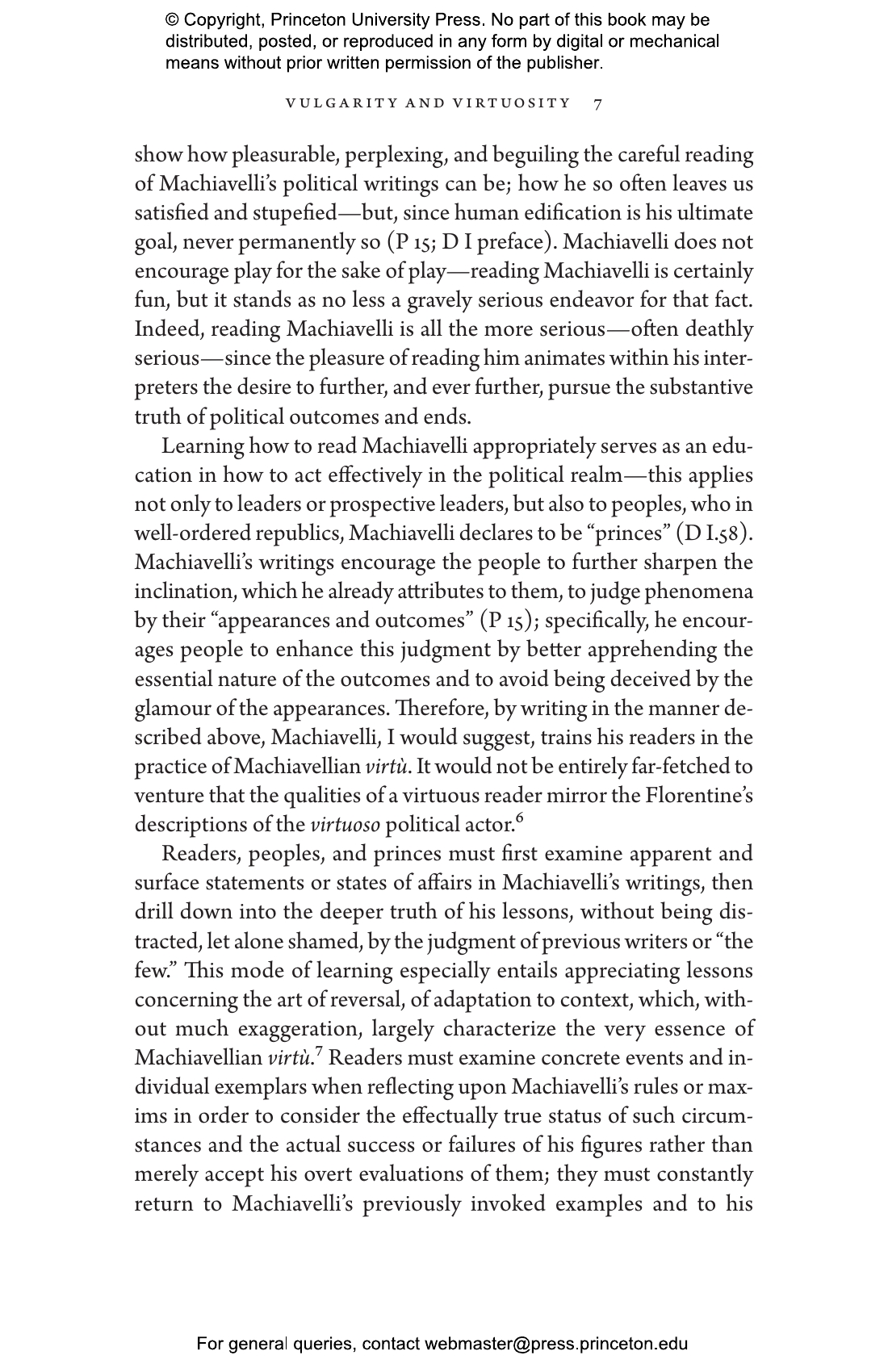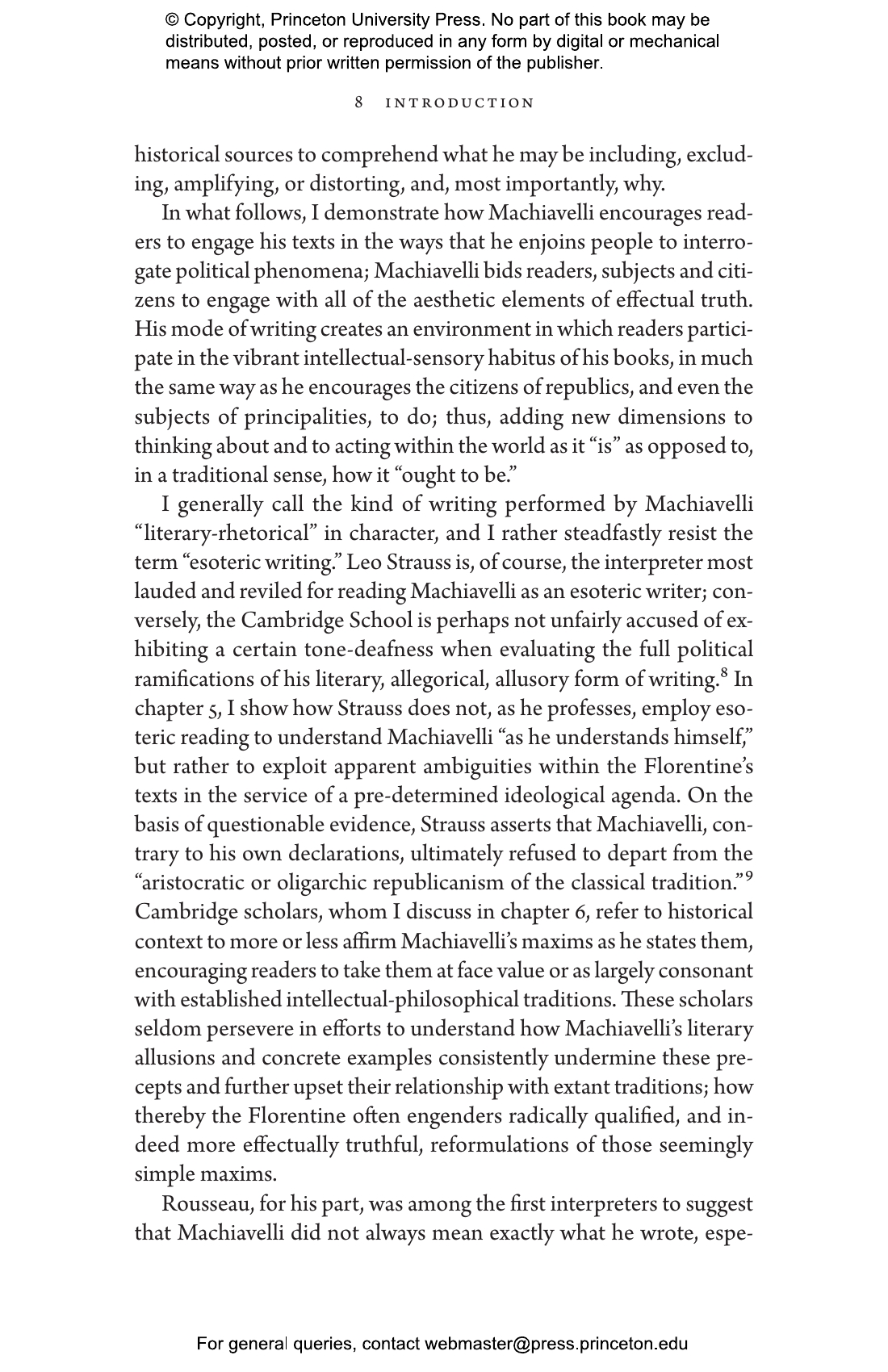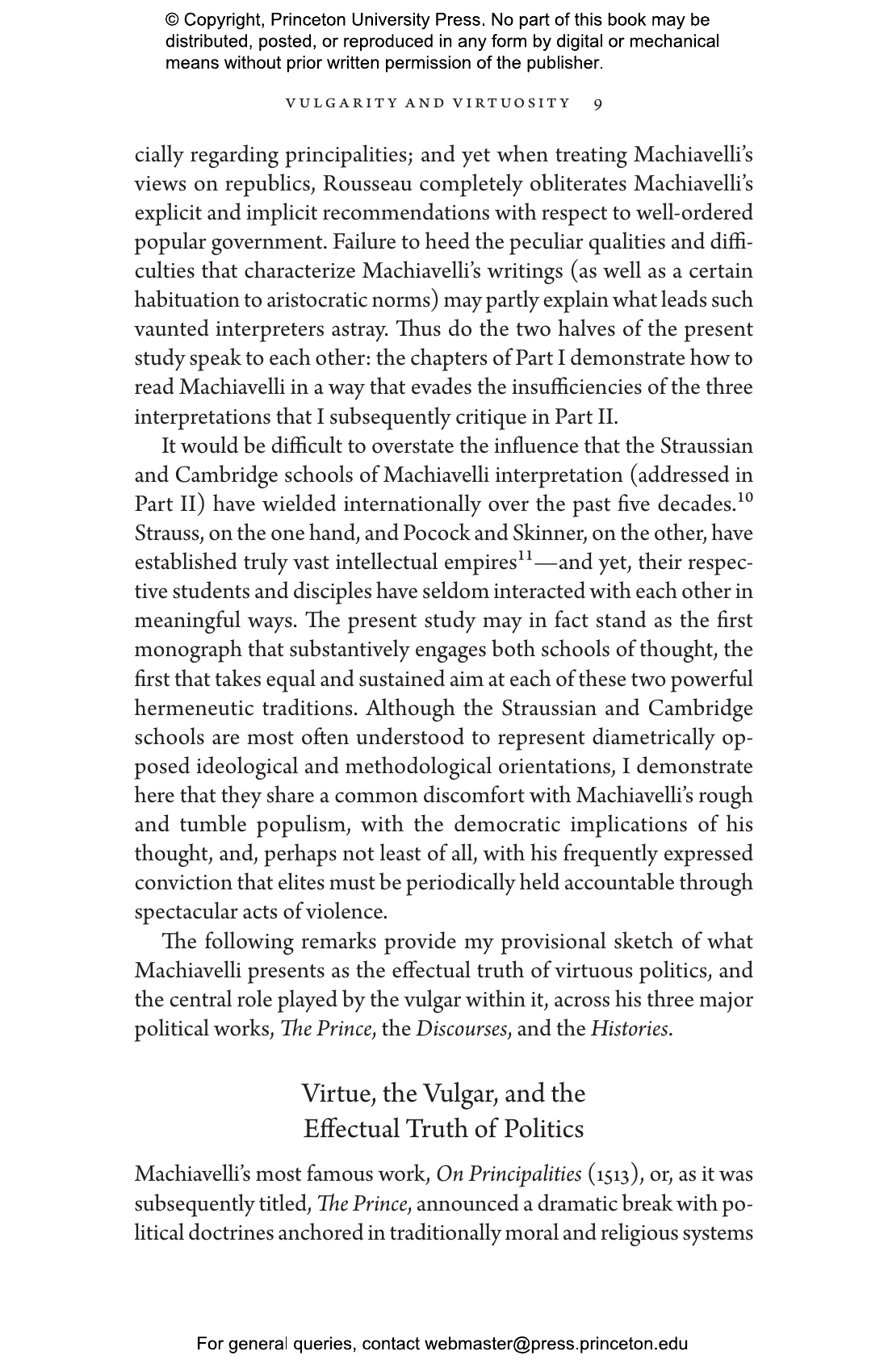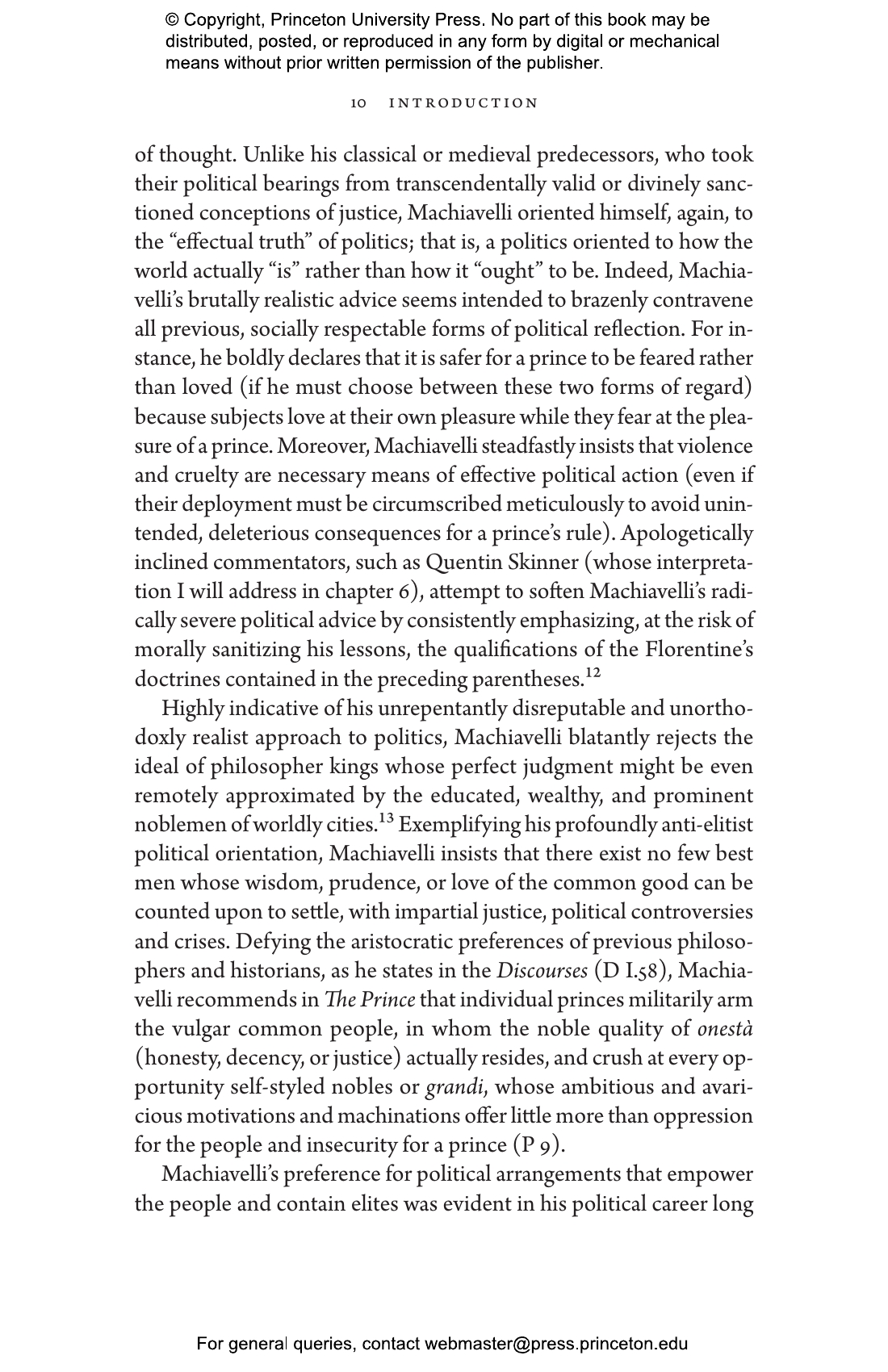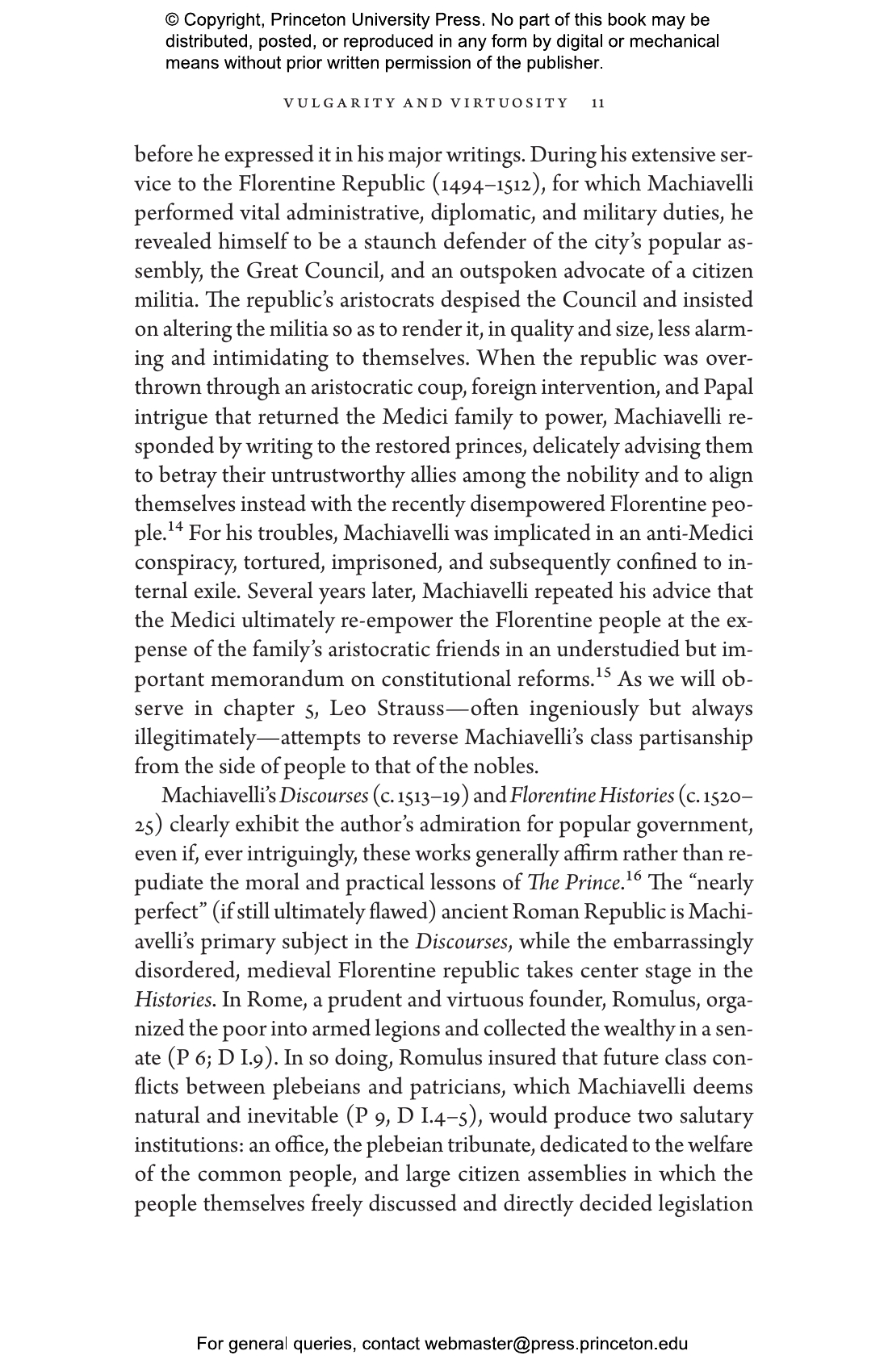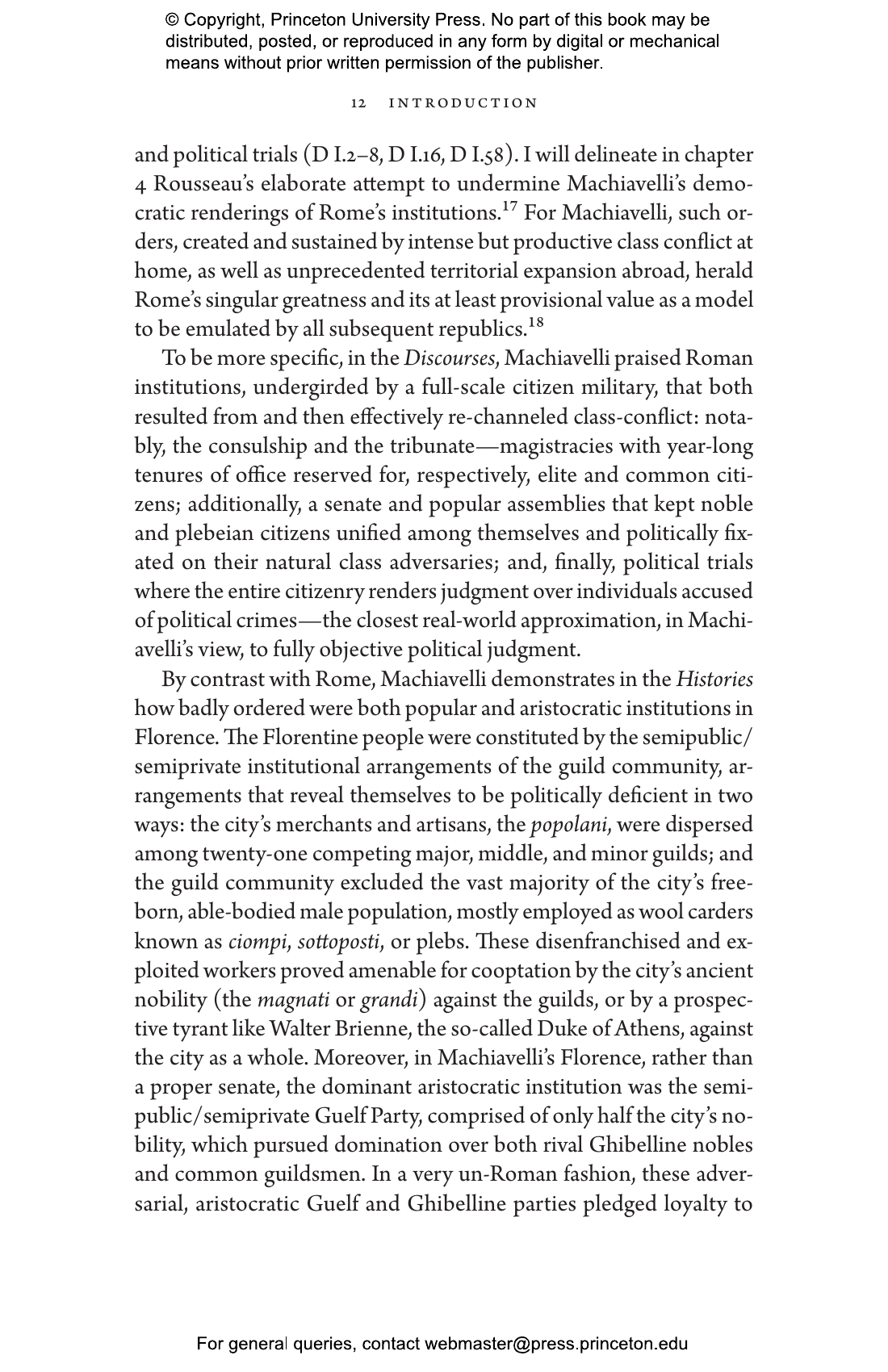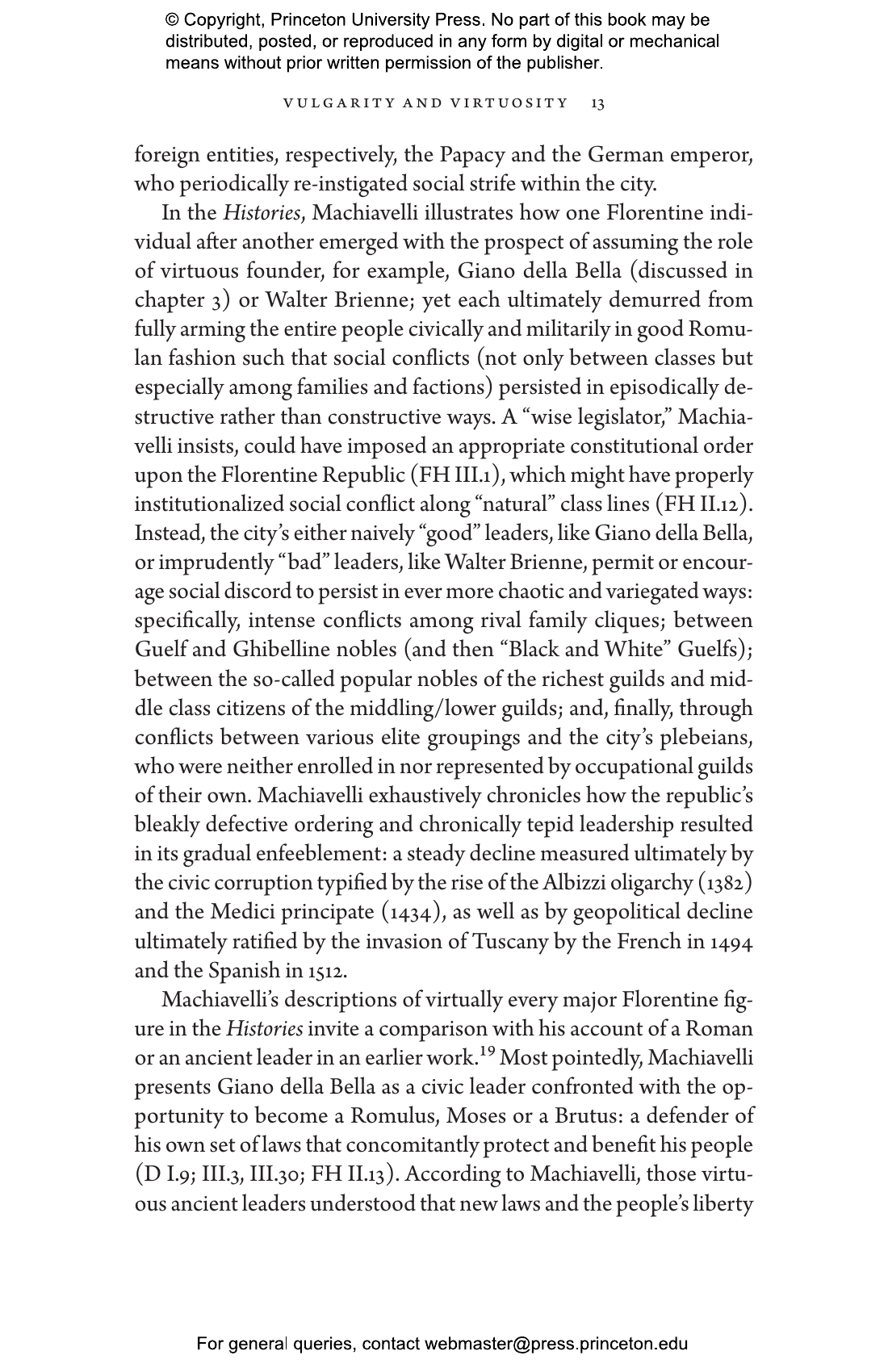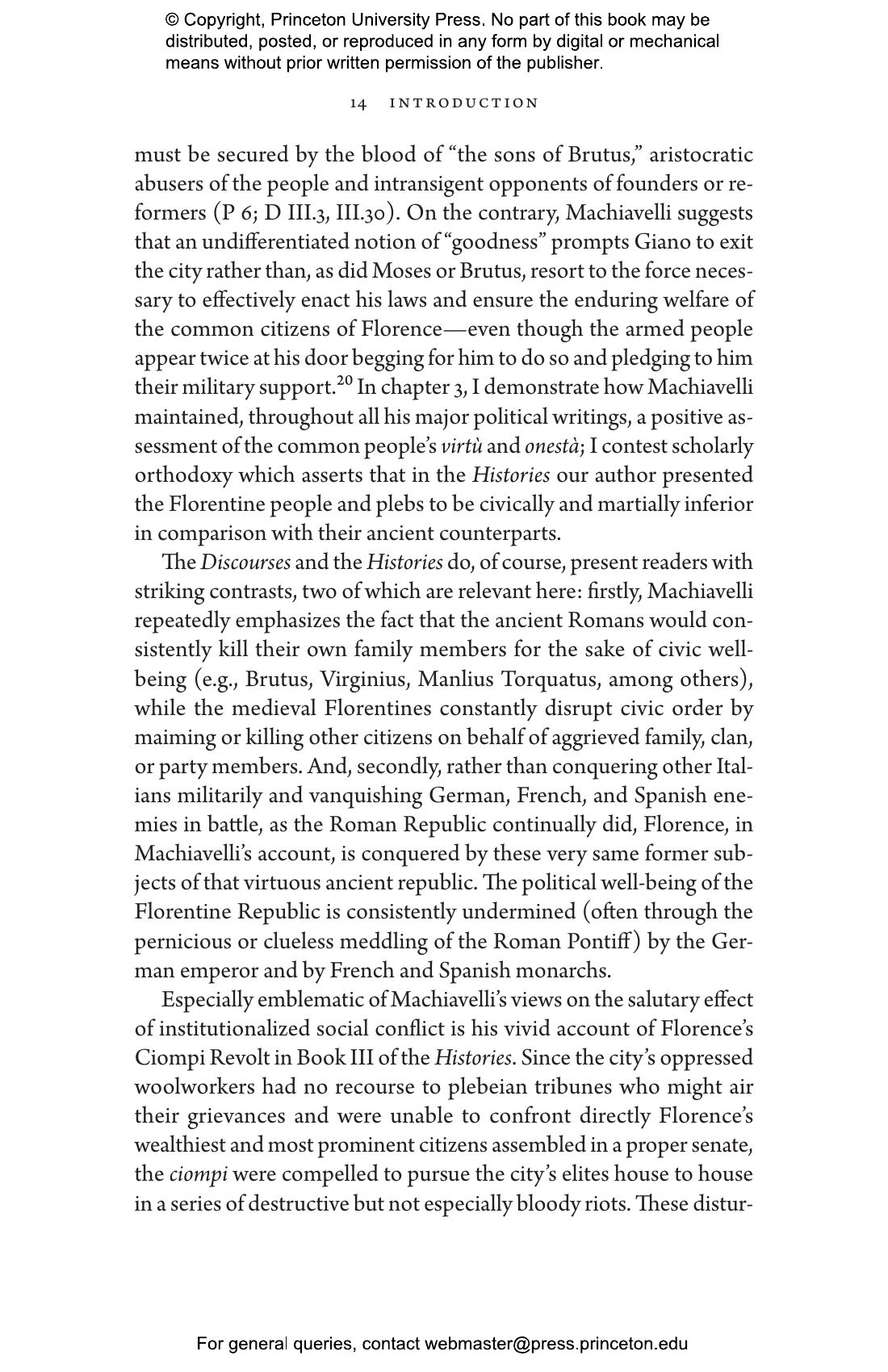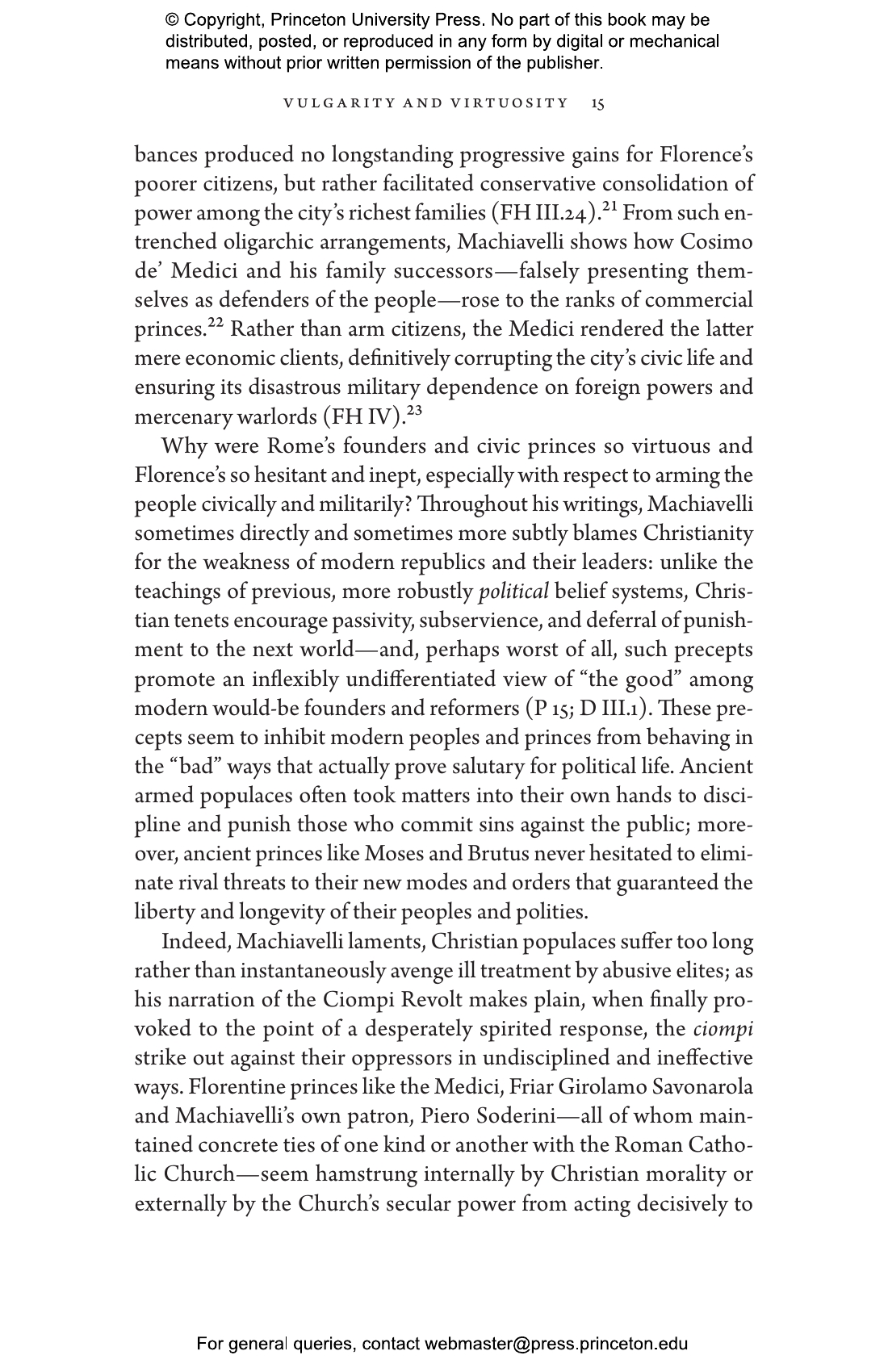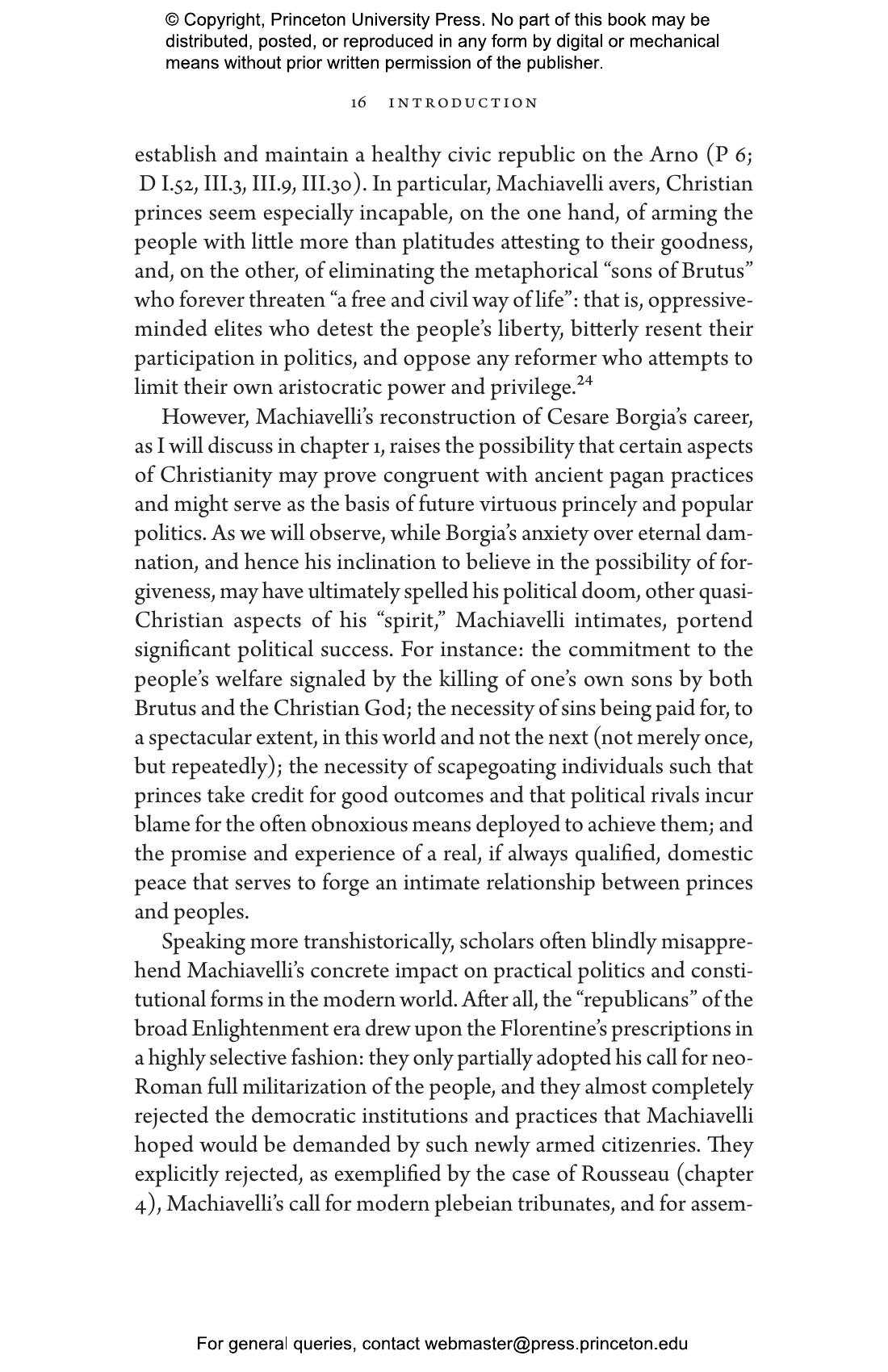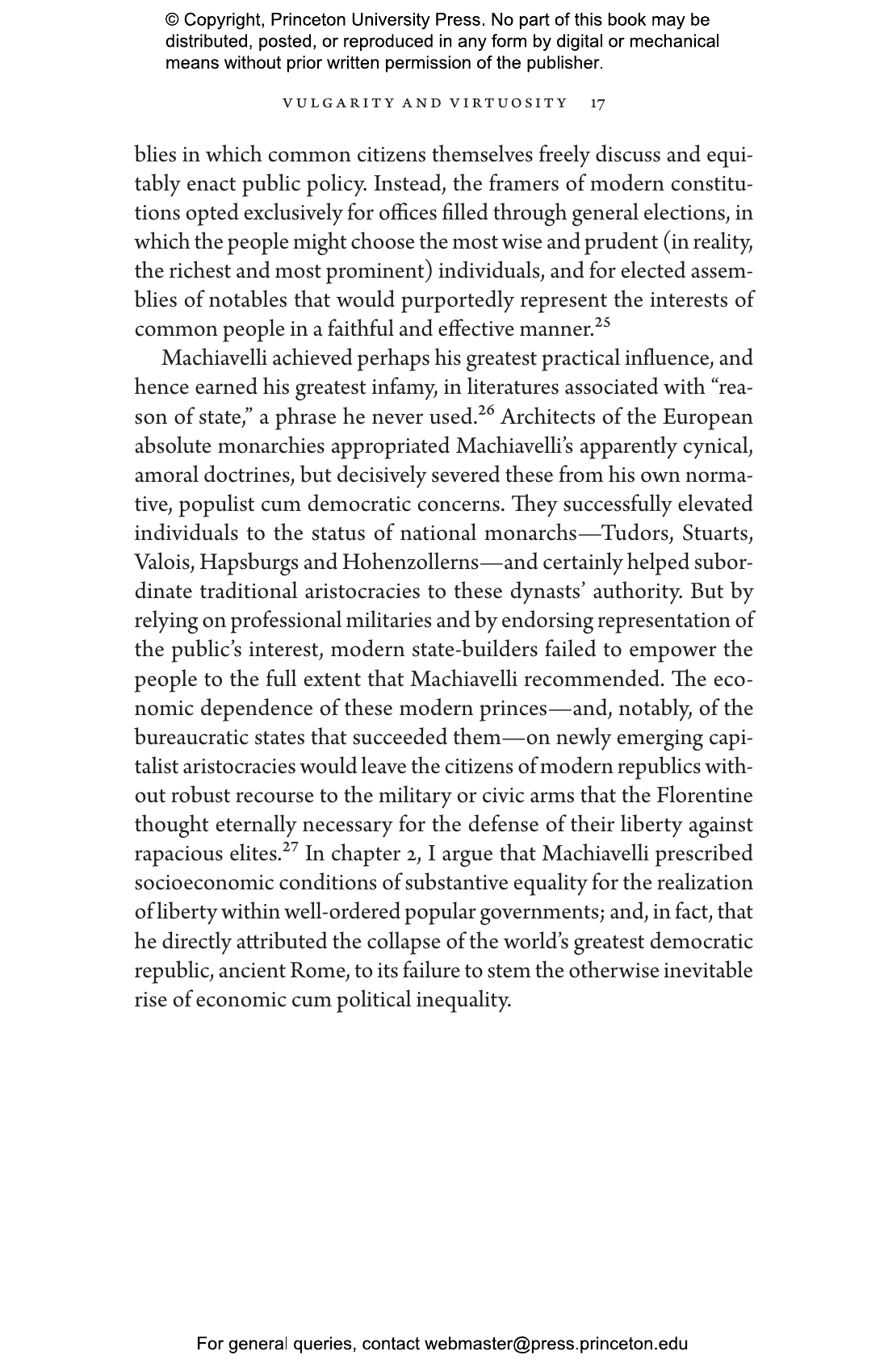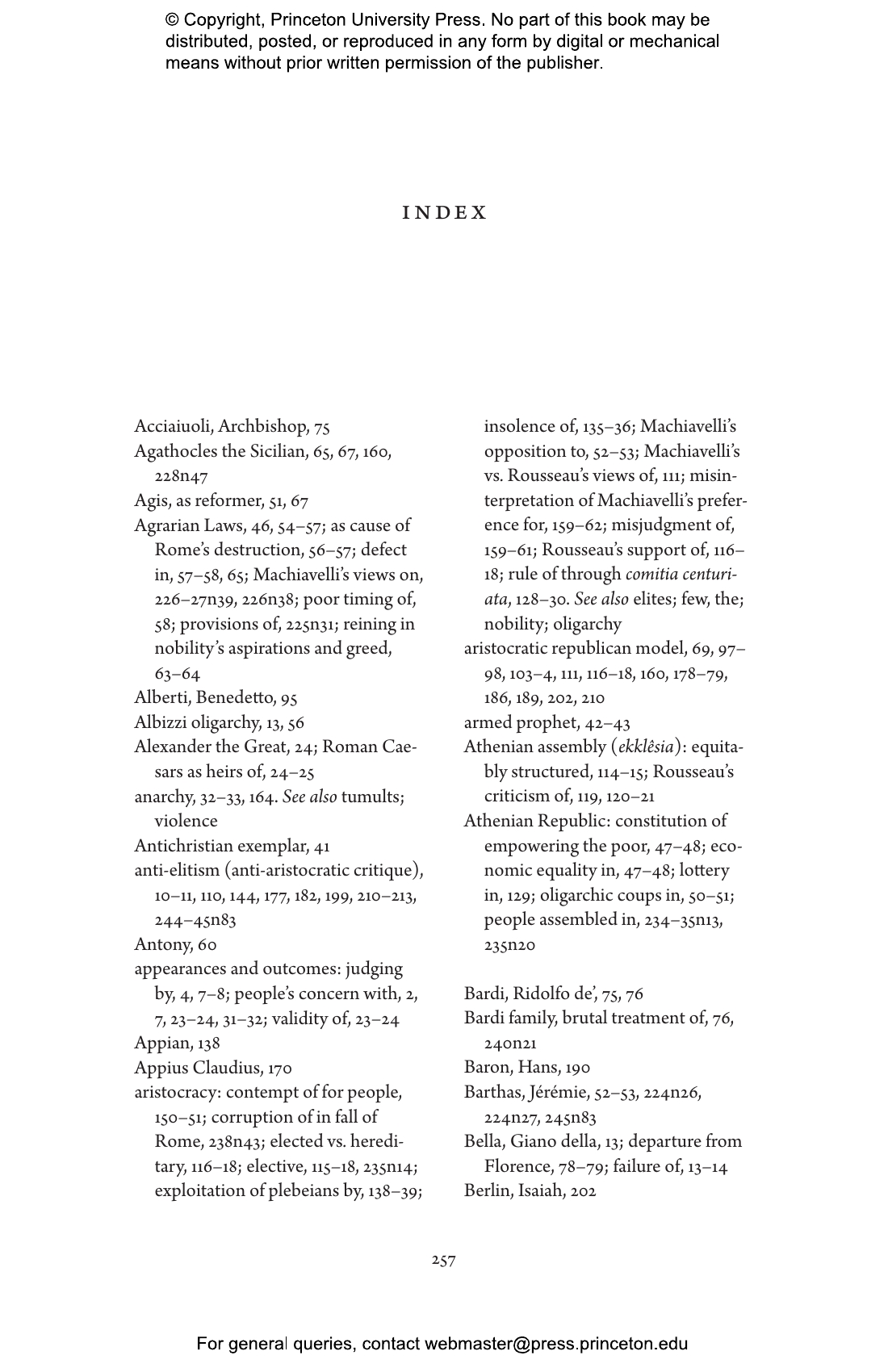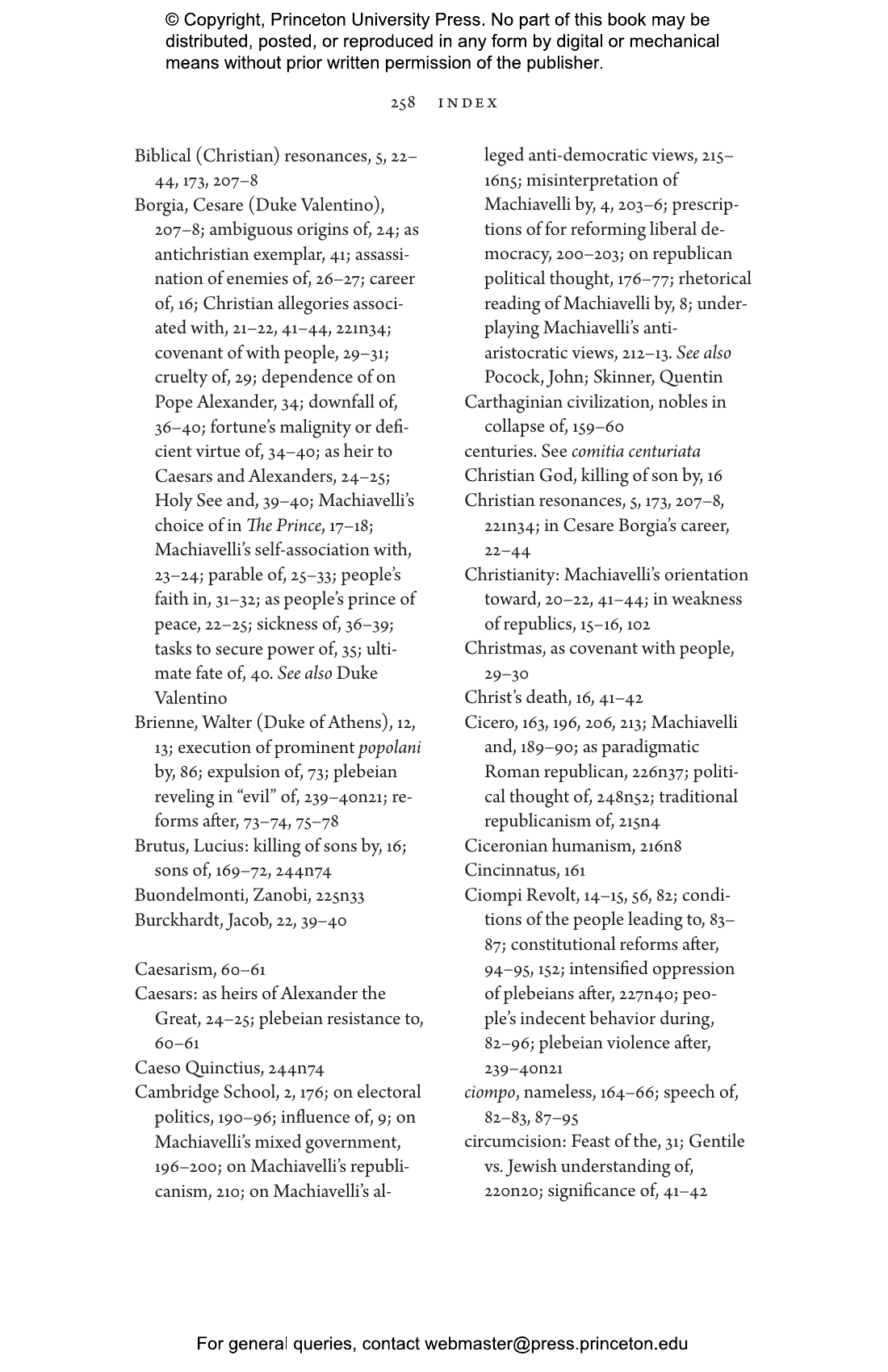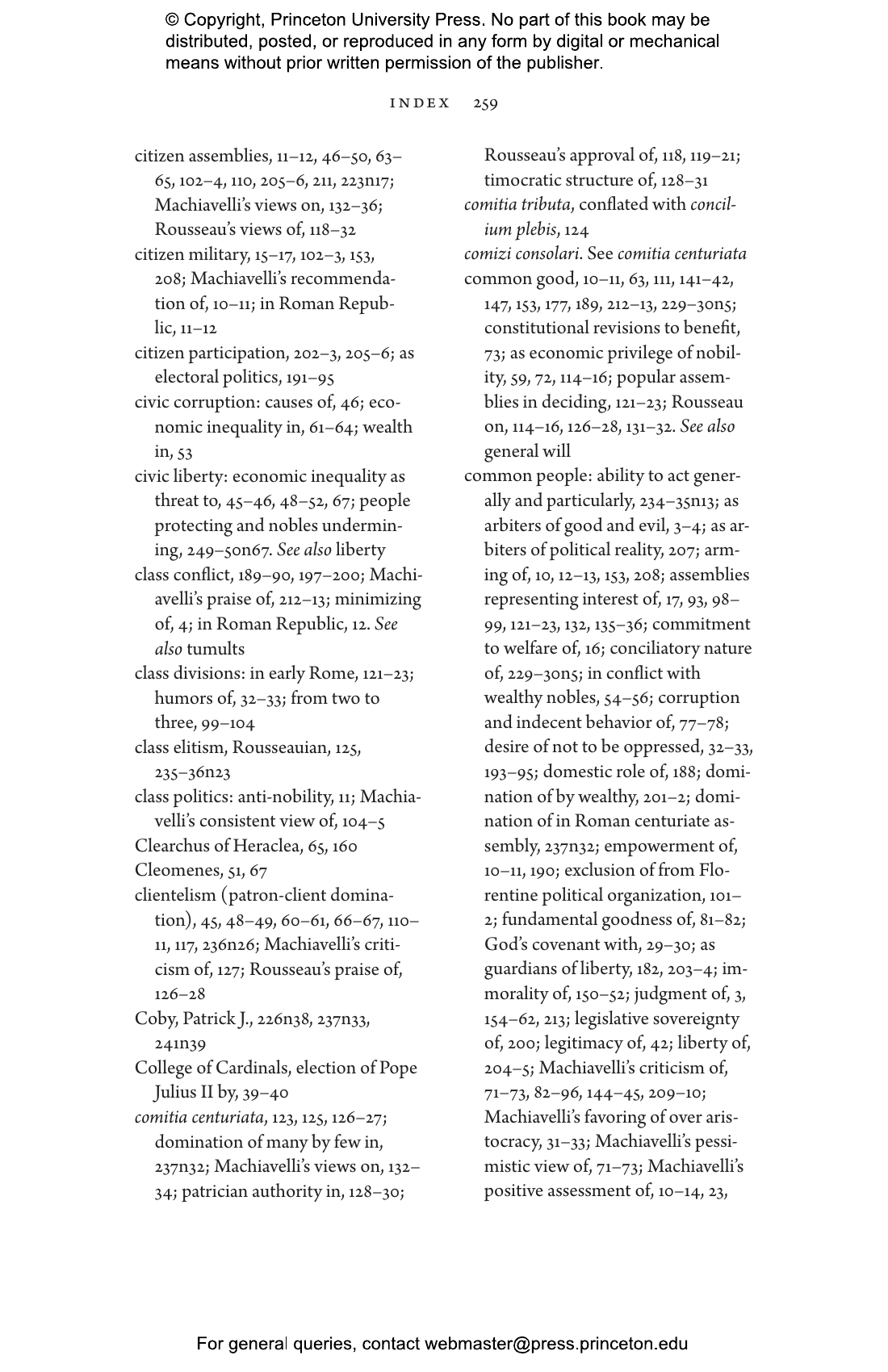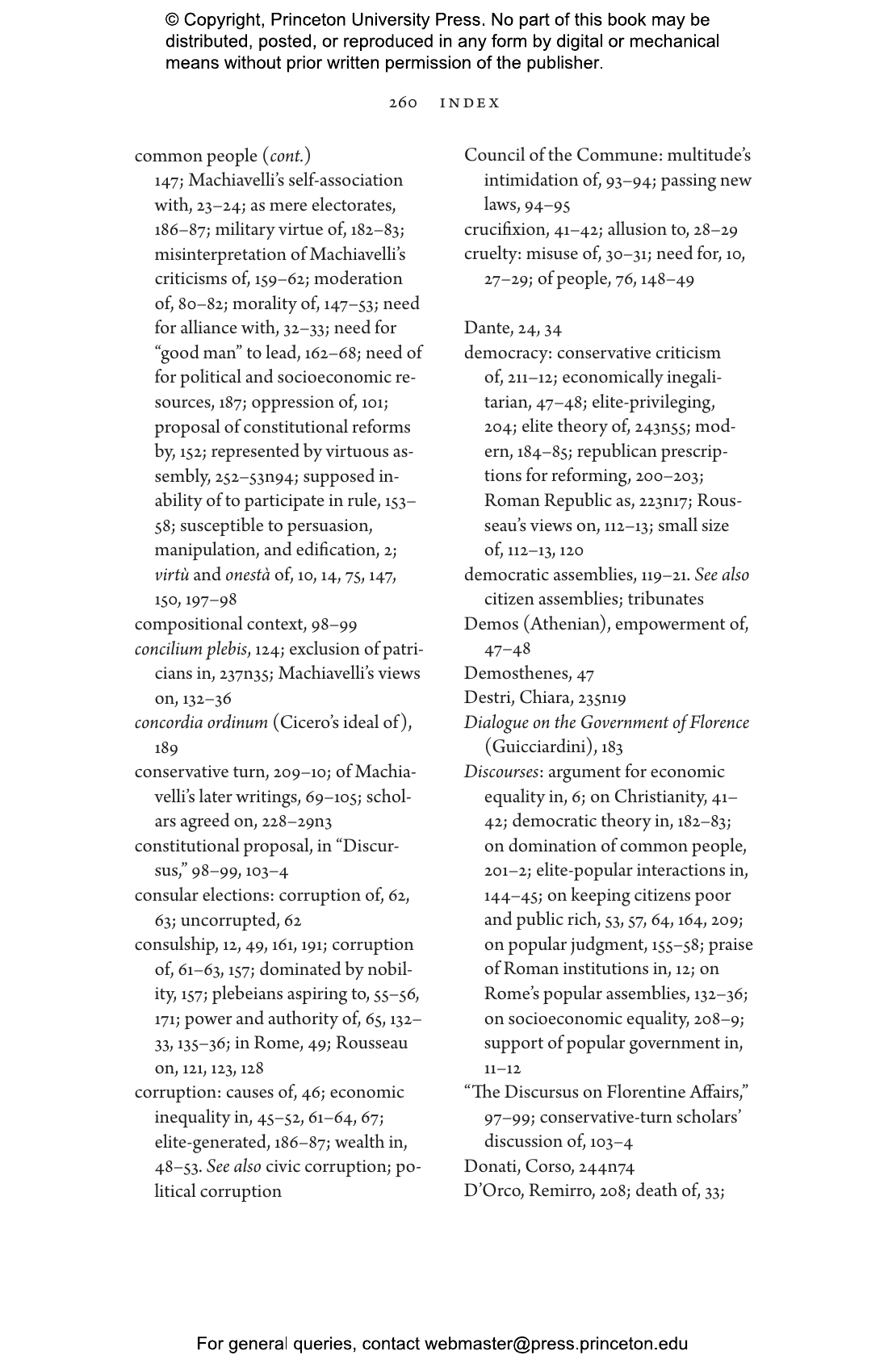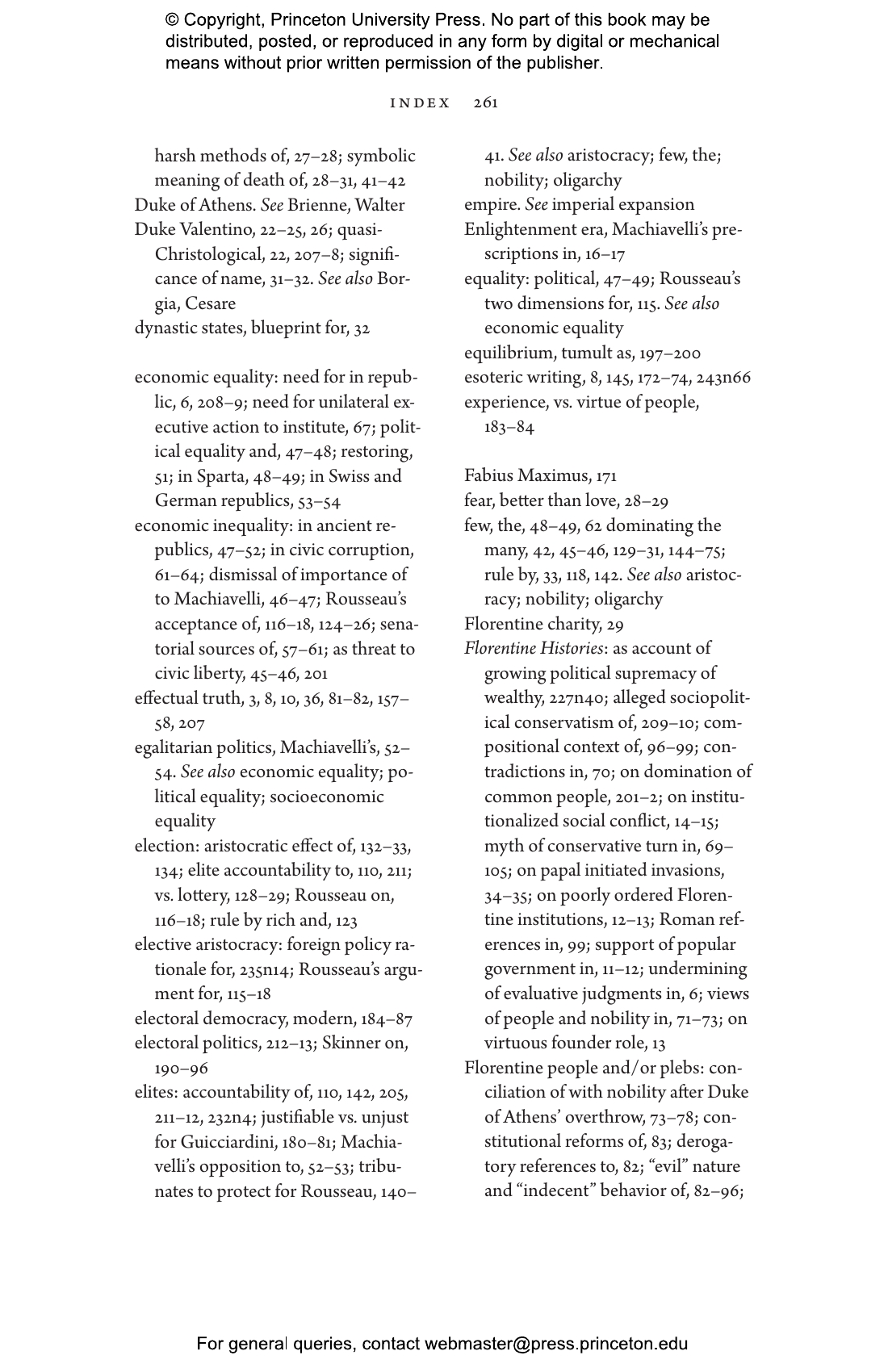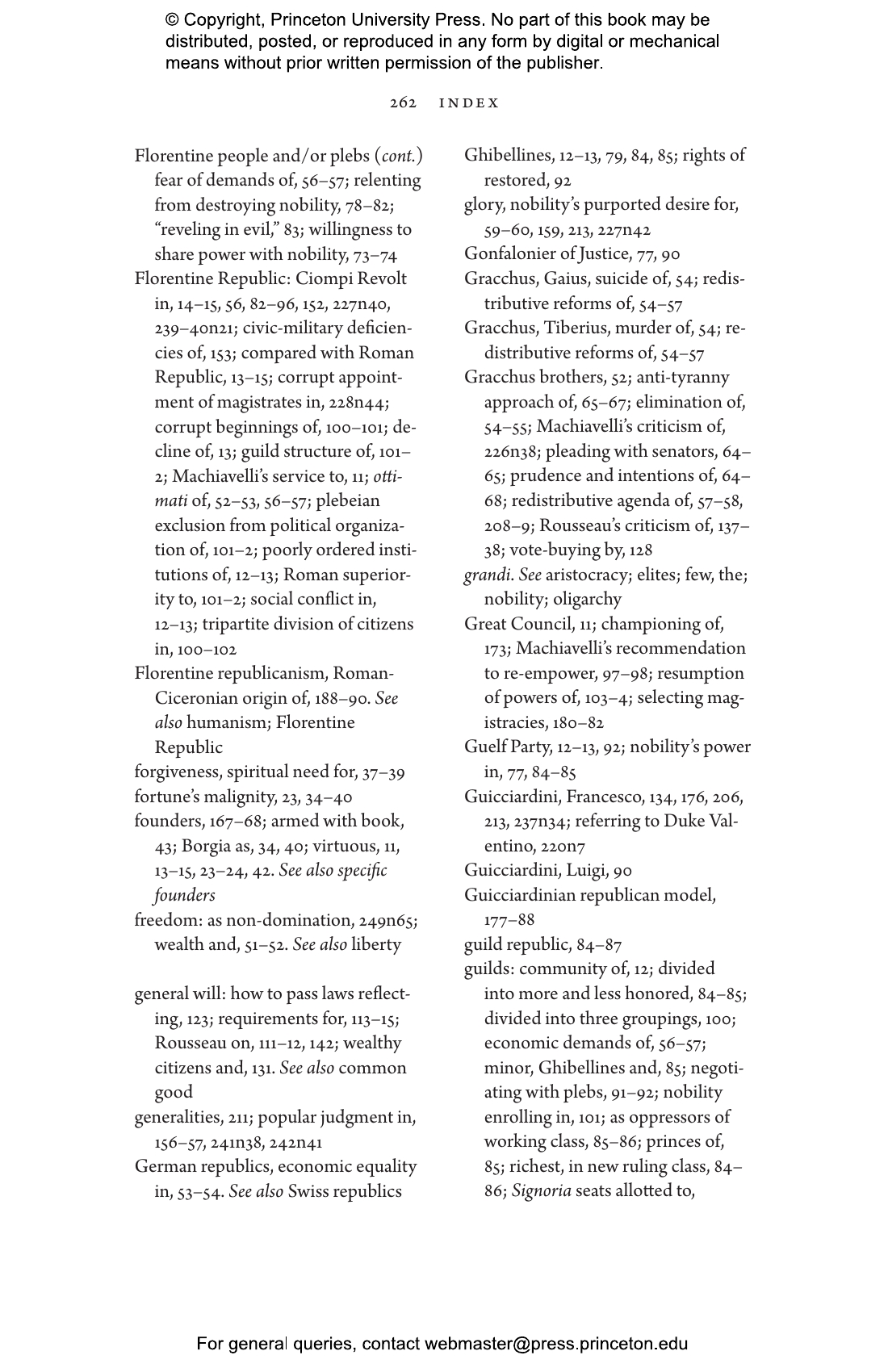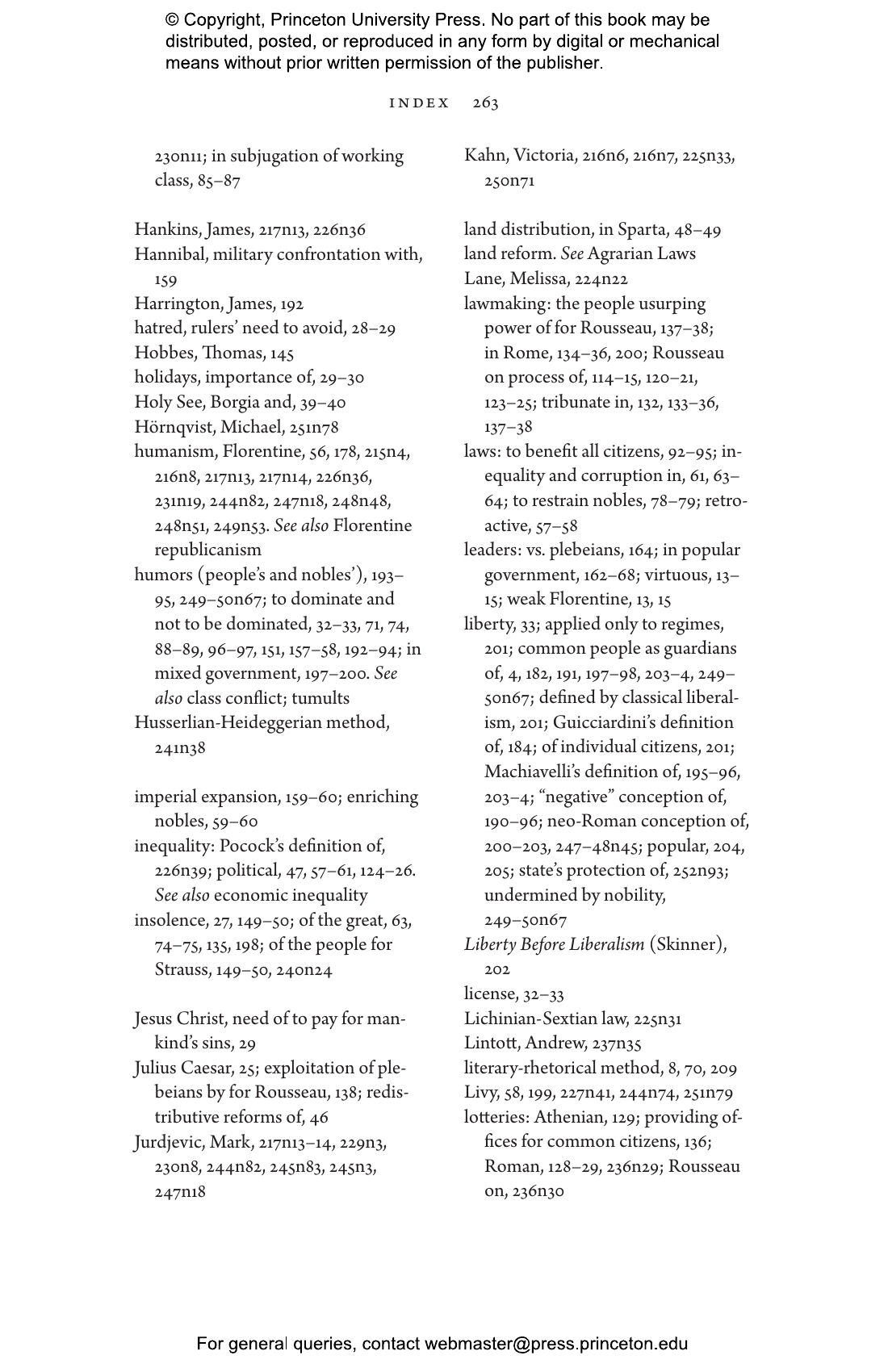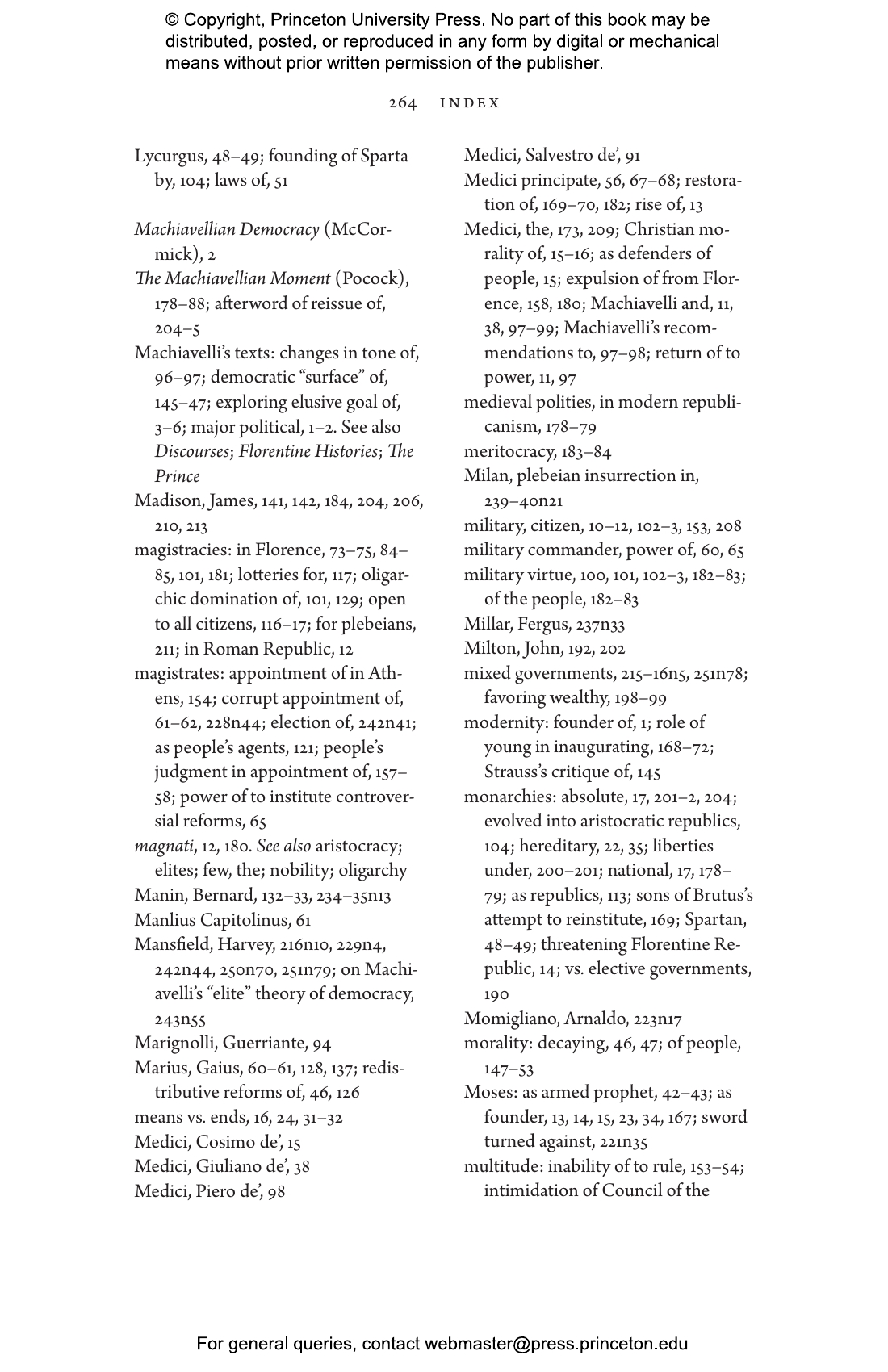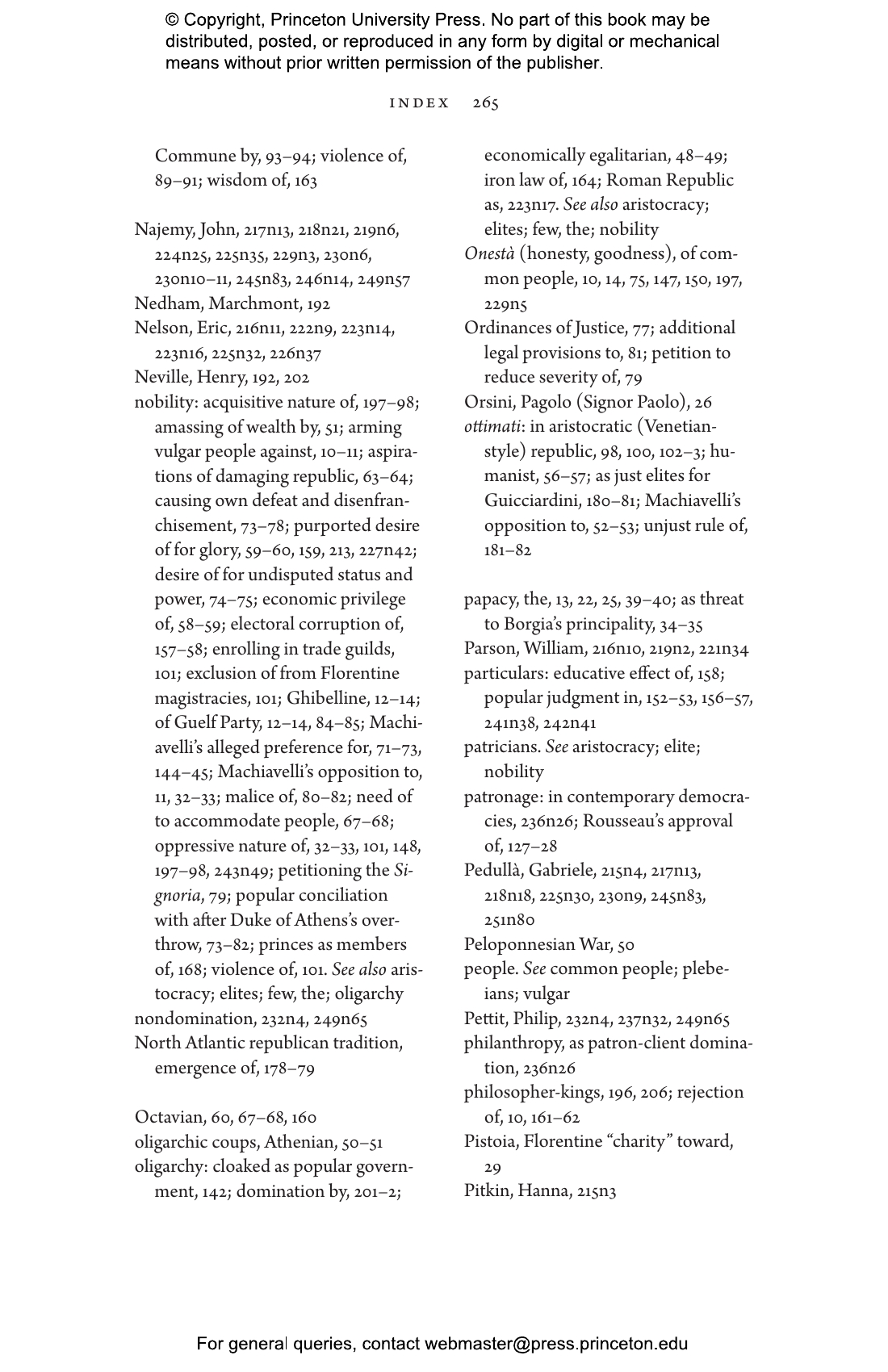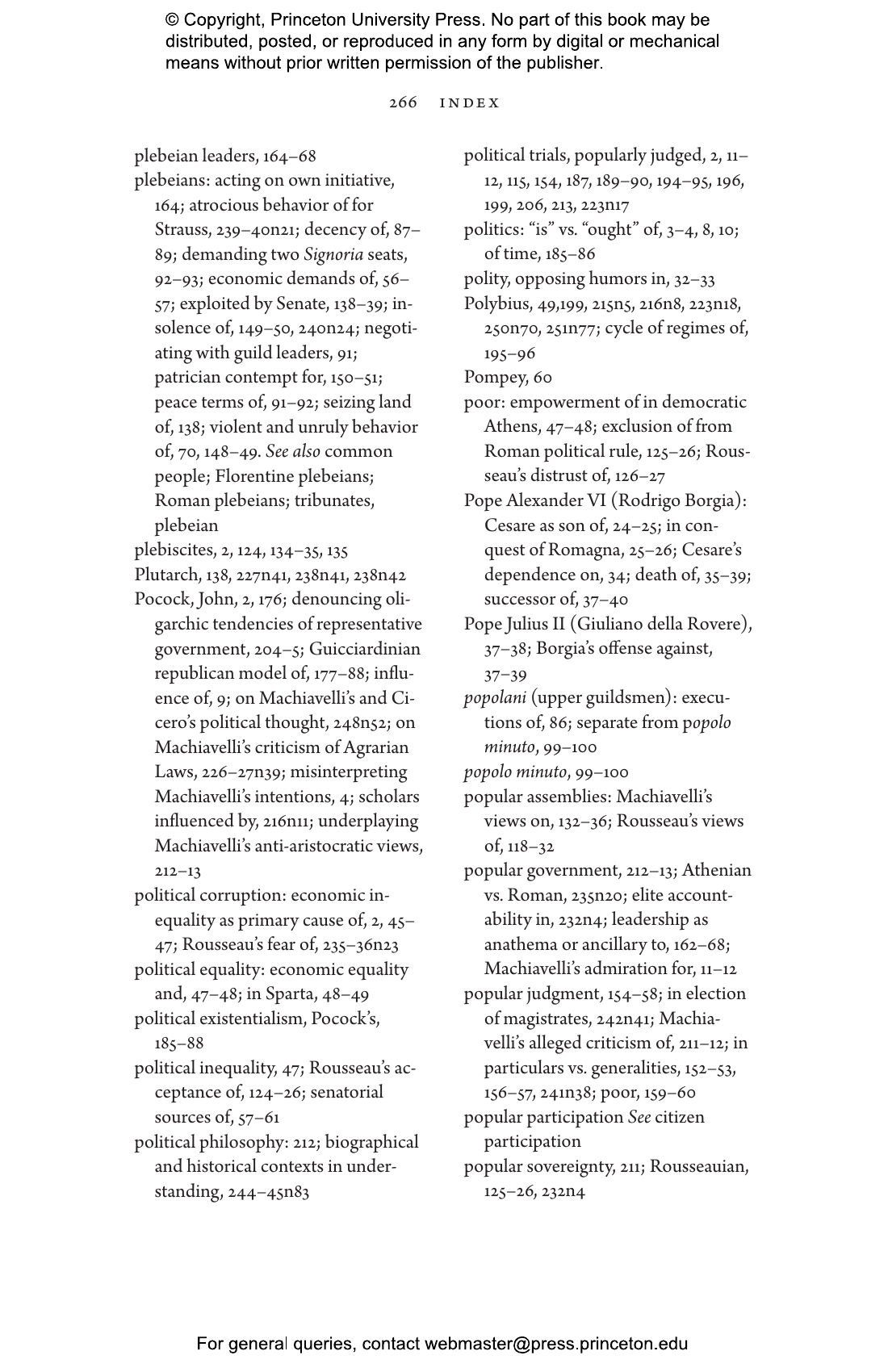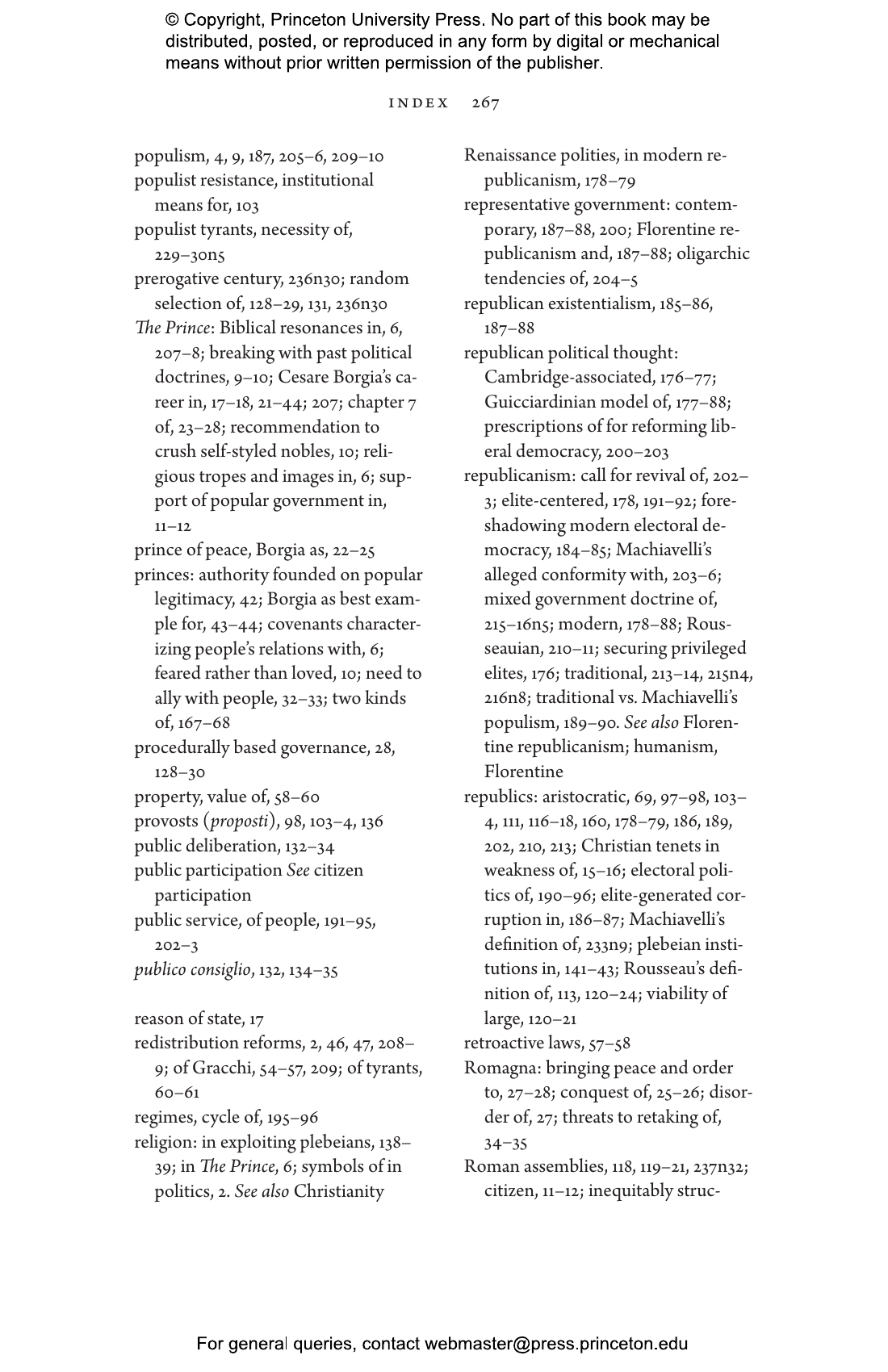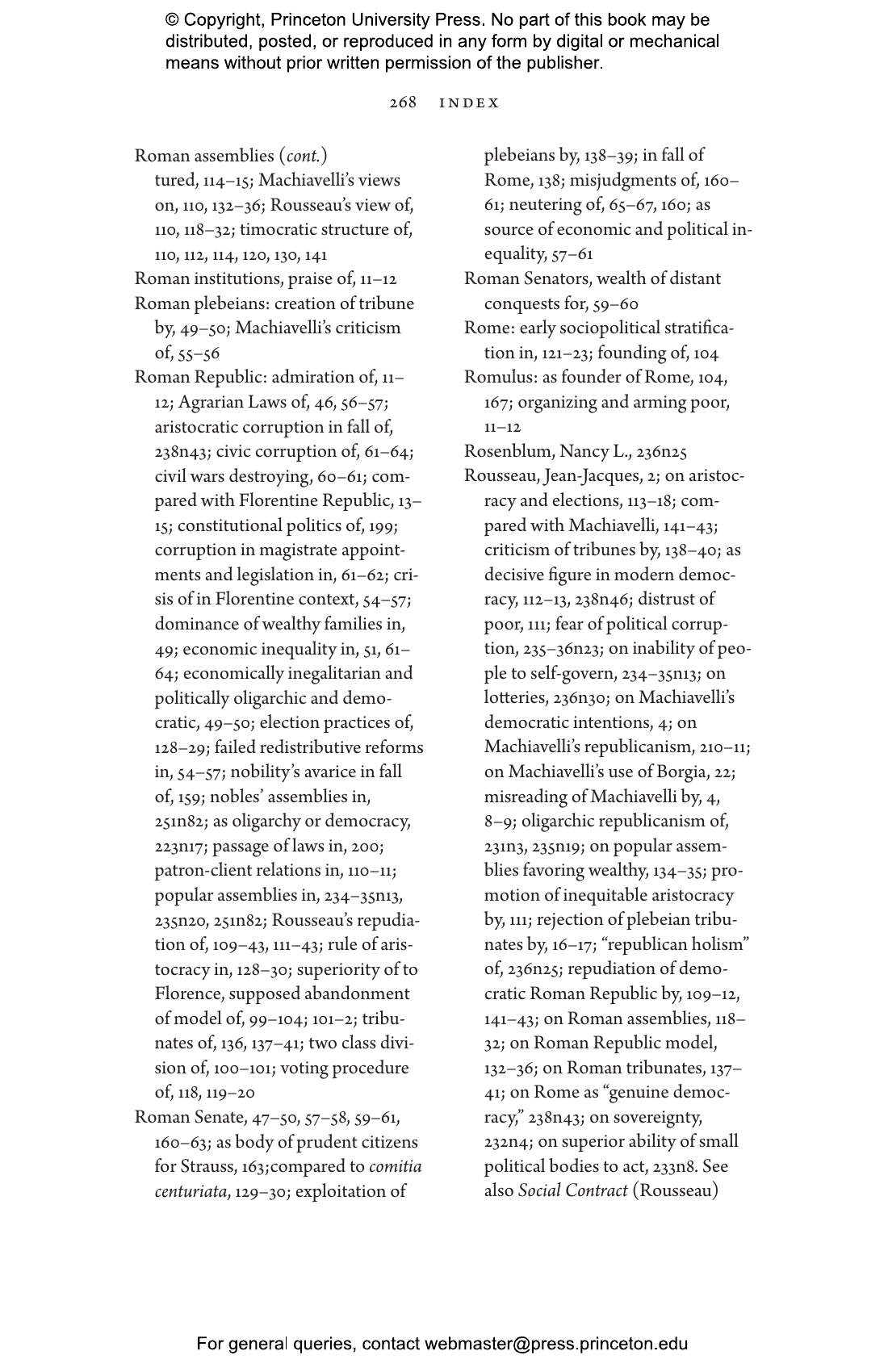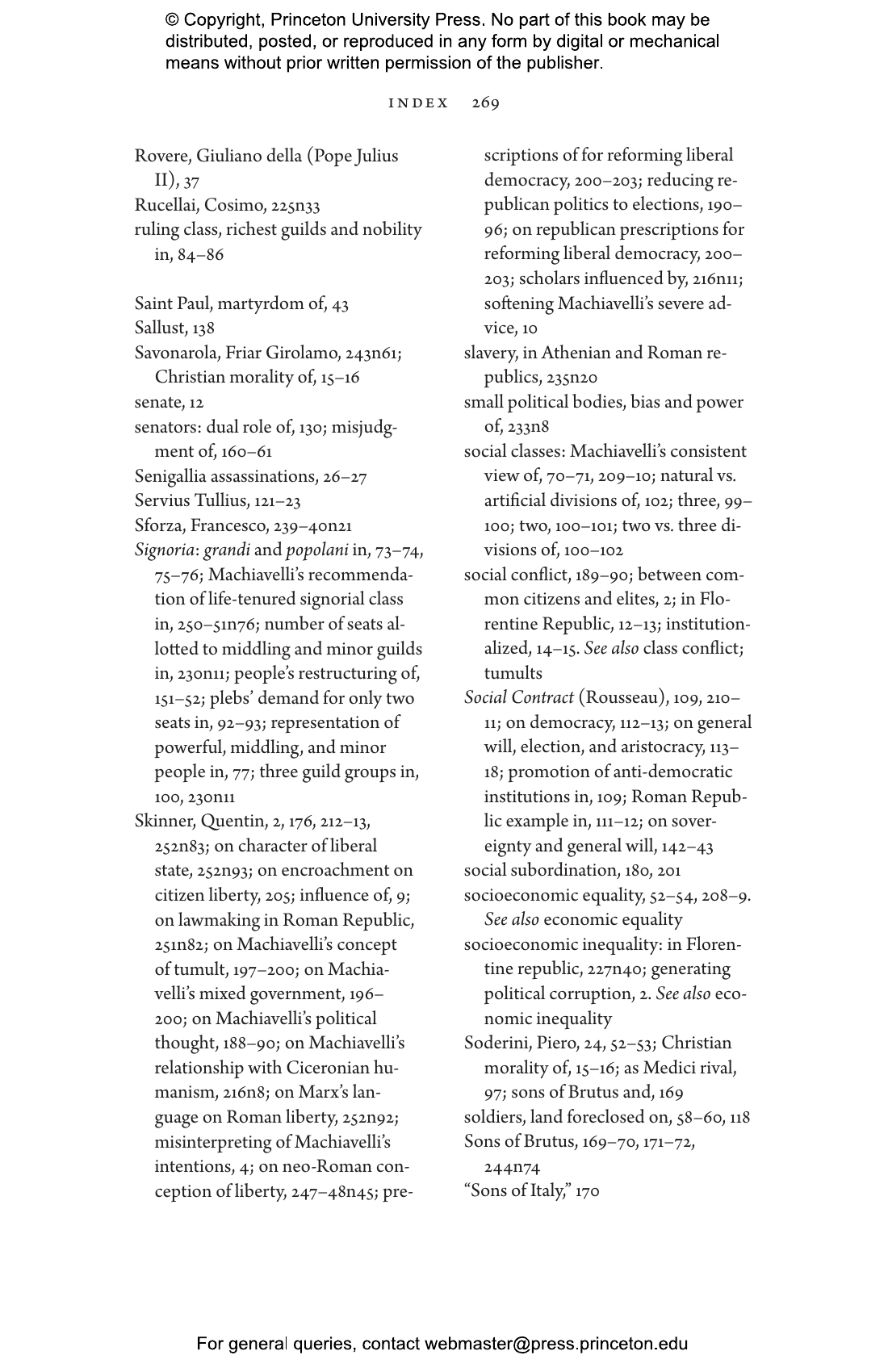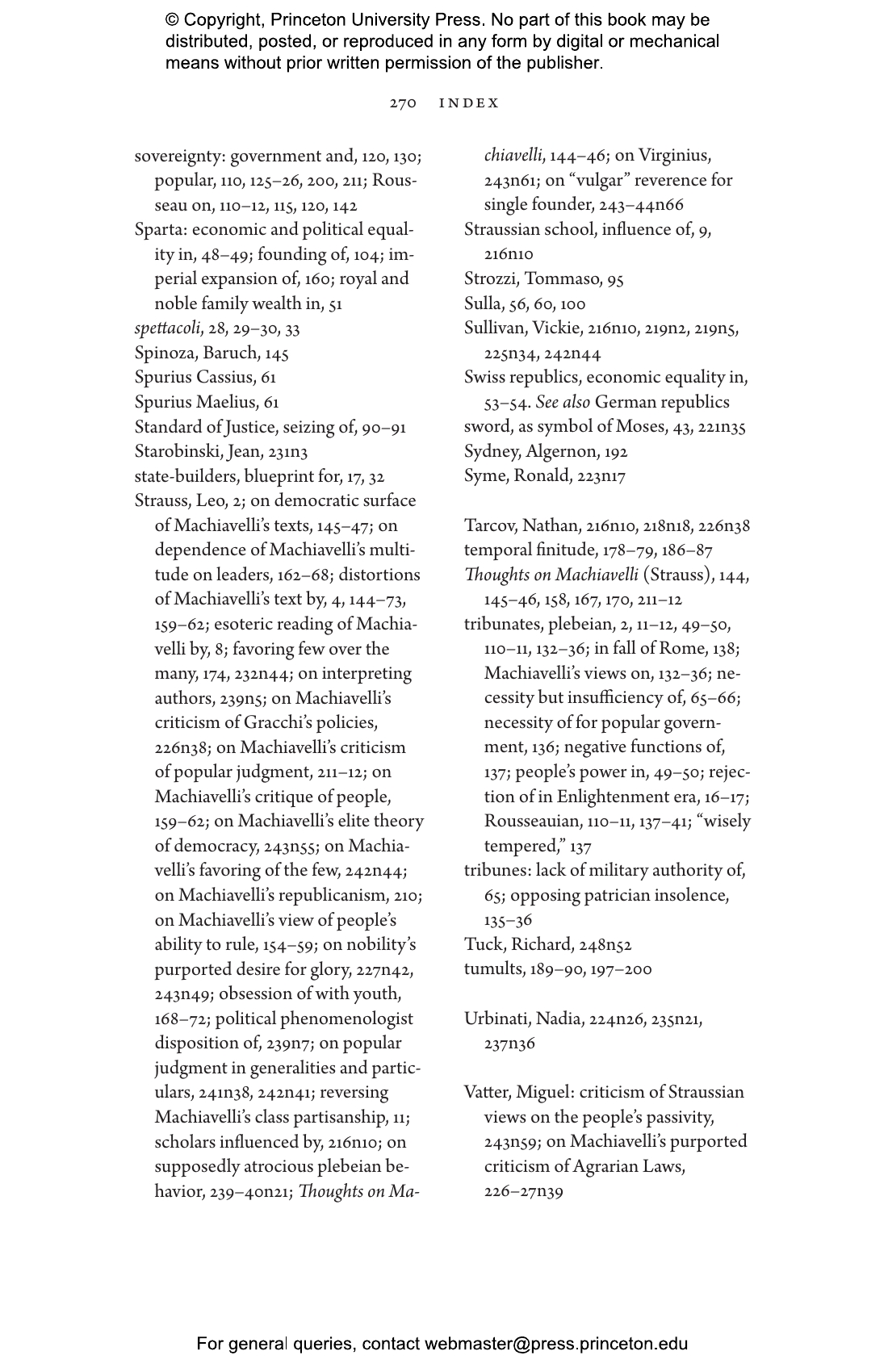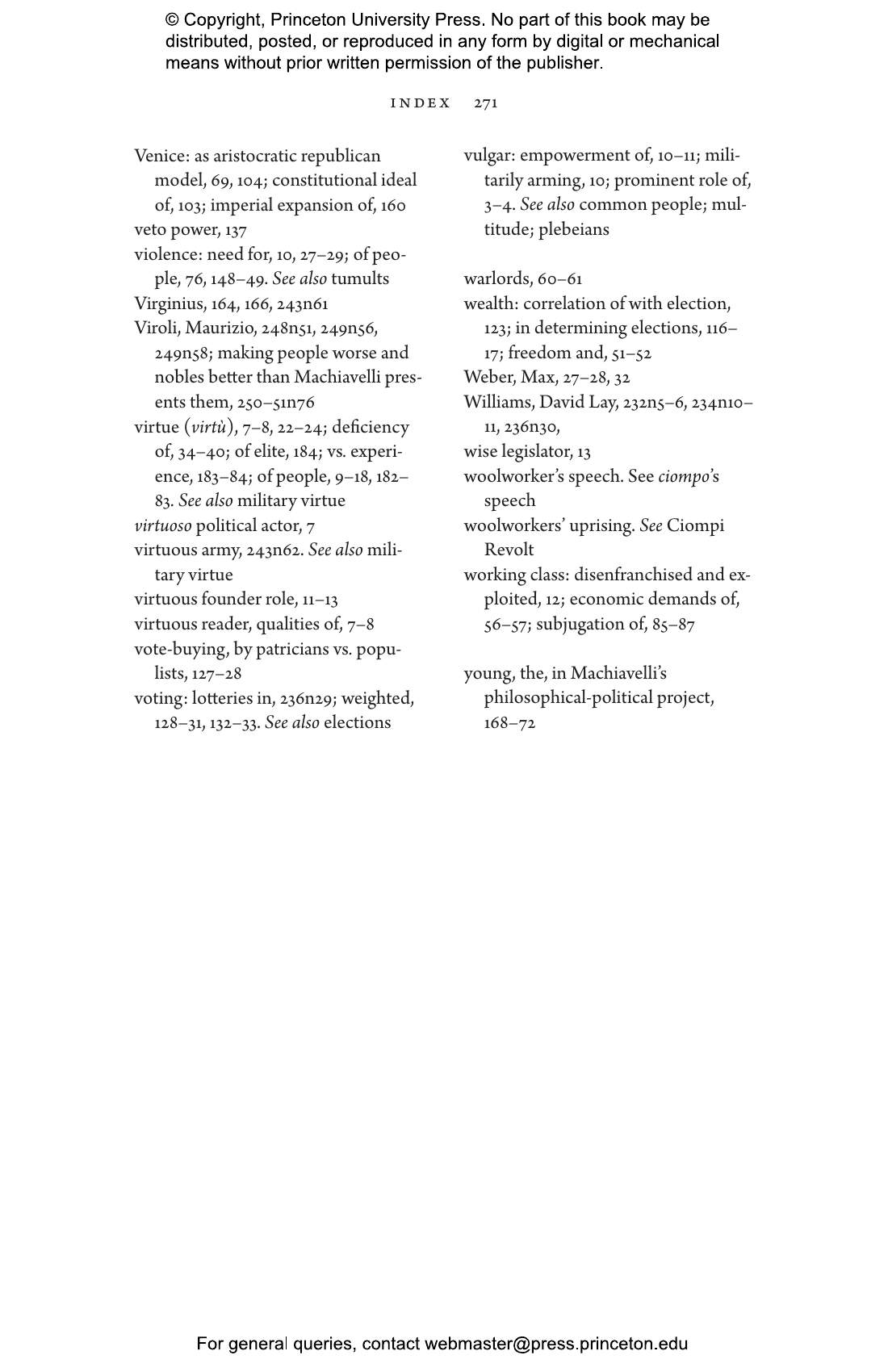To what extent was Machiavelli a “Machiavellian”? Was he an amoral adviser of tyranny or a stalwart partisan of liberty? A neutral technician of power politics or a devout Italian patriot? A reviver of pagan virtue or initiator of modern nihilism? Reading Machiavelli answers these questions through original interpretations of Niccolò Machiavelli’s three major political works—The Prince, Discourses, and Florentine Histories—and demonstrates that a radically democratic populism seeded the Florentine’s scandalous writings. John McCormick challenges the misguided understandings of Machiavelli set forth by prominent thinkers, including Jean-Jacques Rousseau and representatives of the Straussian and Cambridge schools.
McCormick emphasizes the fundamental, often unacknowledged elements of a vibrant Machiavellian politics: the utility of vigorous class conflict between elites and common citizens for virtuous democratic republics, the necessity of political and economic equality for genuine civic liberty, and the indispensability of religious tropes for the exercise of effective popular judgment. Interrogating the established reception of Machiavelli’s work by such readers as Rousseau, Leo Strauss, Quentin Skinner, and J.G.A. Pocock, McCormick exposes what was effectively an elite conspiracy to suppress the Florentine’s contentious, egalitarian politics. In recovering the too-long-concealed quality of Machiavelli’s populism, this book acts as a Machiavellian critique of Machiavelli scholarship.
Advancing fresh renderings of works by Machiavelli while demonstrating how they have been misread previously, Reading Machiavelli presents a new outlook for how politics should be conceptualized and practiced.
Awards and Recognition
- A Choice Outstanding Academic Title of the Year
John P. McCormick is professor of political science at the University of Chicago. His books include Weimar Thought (Princeton) and Machiavellian Democracy.
"This analysis should be essential to any comprehensive treatment of the Florentine’s thought."—R. Heineman, Choice
"With a level of ingenuity and determination equal to that of his Straussian opponents, John McCormick finds a radical populist soul in the Machiavellian corpus. He distances his reading, not just from the conservative, Straussian construal, but also from the Cambridge interpretation that makes the Florentine a hero for progressive neo-republicans. This is political theory by other, historical means. But both the history and the theory are worthy of close attention and they will certainly command it.”—Philip Pettit, author of Just Freedom
“John McCormick is a brilliant reader of Machiavelli’s rhetorical twists and turns, and skewering of conventional pieties. In Reading Machiavelli, McCormick defends his provocative interpretation of Machiavelli as a democratic theorist, while dismantling competing interpretations by Leo Strauss, J.G.A. Pocock, Quentin Skinner, and others. This book will interest not only historians of political thought and early modernists of all stripes, but also contemporary political theorists.”—Victoria Kahn, University of California, Berkeley
“In the last decade, perhaps no scholar has done more to transform Machiavelli’s image than John McCormick. In his new book, McCormick exposes the prejudices that prevented Straussians and neo-republicans from acknowledging Machiavelli’s commitment to popular empowerment and elaborates a new grand narrative, in which Machiavelli (and neither Rousseau nor Spinoza) stands as the major early-modern source of contemporary democracy. Combining sharp close readings with an exceptional sensitivity to long-range historical trends, Reading Machiavelli offers a rare example of what intellectual history and political theory can be when practiced at the highest level."—Gabriele Pedullà, author of Machiavelli in Tumult
“This provocative, effective, and subtly argued book demonstrates Machiavelli’s consistent advocacy of a new form of muscular populist politics in three of his major works. It also shows in detail how and why major interpretive schools of Machiavelli’s political thought have either missed or deliberately obscured the radical extent of this hard-edged populism. Reading Machiavelli will generate substantive, constructive debate.”—Mark Jurdjevic, York University, Glendon
“Distinct from other approaches to Machiavelli, this impressive book places class and class conflict at the fore. Given the political moment and the continued discussion of inequality and demagoguery, Reading Machiavelli is timely and important. It will surely have a major impact in political theory and political science more broadly, as well as in intellectual history, political philosophy, and the study of early modern Europe.”—Daniel Kapust, University of Wisconsin–Madison
